How to Talk about Your Education in English
When it comes to discussing your education in English, it’s important to use appropriate language depending on the situation. Whether you are in a formal or informal setting, accurately conveying your educational background is crucial. In this guide, we will provide you with tips, examples, and variations to help you effectively talk about your education in English.

1. Formal Ways to Discuss Your Education
When speaking formally about your education, it is essential to use proper grammar and structure. Here are some phrases to consider:
- Academic Achievements: I have completed a Bachelor’s degree in Economics from XYZ University.
- Certifications: I hold a Master’s degree in Business Administration from ABC Institution.
- Specializations: My education focused on Marketing and International Business.
- GPA: I achieved a 3.9 GPA during my studies.
- Thesis/Dissertation: My thesis was about the effects of social media on consumer behavior.
- Extracurricular Activities: I actively participated in various student organizations, such as the Debate Club and the Volunteer Society.
- Language Skills: I am fluent in English, French, and Spanish.
2. Informal Ways to Talk about Your Education
In casual conversations or less formal settings, you can use more relaxed language while still conveying the relevant information. Consider these examples:
- Completed Degree: I graduated with a Bachelor’s in Economics from XYZ University.
- Master’s Degree: I have a Master’s in Business Administration from ABC Institution.
- Focus of Study: During my education, I specialized in Marketing and International Business.
- Good Grades: I did really well in my studies and maintained a high GPA of 3.9.
- Research Work: My thesis examined the impact of social media on consumer behavior.
- Extracurriculars: I was actively involved in clubs like the Debate Club and the Volunteer Society.
- Language Abilities: I am fluent in English, French, and Spanish.
3. Targeting Regional Variations
In most cases, discussing your education in English follows similar patterns worldwide. However, certain regional variations exist. For instance, in British English, the word “university” is more commonly used than “college,” which is frequently used in American English. It’s essential to be aware of these distinctions when communicating in specific English-speaking regions.
4. Tips for Talking About Your Education
Highlight Relevant Information: Emphasize academic accomplishments and skills that are relevant to the situation or position you are discussing. This enables you to showcase your expertise effectively.
Provide Context: When discussing your education, it can be helpful to provide context about the institution you attended and any notable accolades or programs associated with it. This information can give your discussion partner a better understanding of your background.
Keep it Concise: While it’s important to highlight your education, be mindful not to ramble. Keep your responses concise and relevant, focusing on the key points that demonstrate your qualifications.
Use Active Language: When describing your educational achievements, use active language to express your involvement, such as “I studied,” “I researched,” or “I specialized in.”
Be Honest and Accurate: It’s crucial to provide accurate information about your education. False or misleading statements can significantly impact your credibility and reputation.
Practice and Prepare: Before any formal or informal conversation about your education, take time to practice and prepare your responses. This will help you feel more confident and ensure your delivery is smooth and concise.
5. Examples:
Let’s put the above tips into practice with a few examples:
Person A: “So, tell me about your education.” Person B: “Sure! I graduated with a Bachelor’s in Computer Science from XYZ University. My studies focused on Machine Learning, and I was actively involved in the Computer Science Club throughout my degree.”
Interviewer: “Could you share your educational background with us?” Candidate: “Certainly! I completed a Master’s degree in Finance from ABC Institution. During my studies, I conducted extensive research on financial markets and completed a thesis on portfolio management. Additionally, I was the Vice President of the Finance Club, where I organized several guest speaker events.”
Remember, practicing your responses and tailoring them to the situation will greatly enhance your ability to effectively communicate your educational background in English.
By following the tips and examples provided in this guide, you can confidently discuss your education in both formal and informal settings, ensuring that you accurately convey your qualifications and achievements.
Related Posts

Guide: How to Talk About Your Education
Welcome to our comprehensive guide on how to effectively discuss your education. Whether you're in a formal setting like a job interview or having a casual conversation with friends, properly expressing details about your educational background is essential. This guide will provide you with tips, examples, and variations for both formal and informal situations. So, let's dive in!
How to Talk About Education in an Interview: A Comprehensive Guide
Preparing for a job interview can be nerve-wracking, and talking about your education can be a critical aspect of the conversation. Employers often inquire about your educational background to assess your qualifications and determine if you are the right fit for the role. In this guide, we will discuss how to effectively discuss your education during an interview, covering both formal and informal approaches. We will provide you with numerous tips, examples, and strategies to help you impress your interviewer. So, let's dive in!
How to Talk About Your Educational Background: A Comprehensive Guide
Gaining proficiency in expressing your educational background effectively is essential for various situations, such as job interviews, college applications, or networking events. Whether you need to discuss your educational journey formally or informally, knowing how to articulate your experiences can make a significant difference. In this guide, we'll provide you with tips, examples, and variations to confidently convey your educational background. Let's dive in!
How to Talk About Your Family Background in an Interview
When it comes to job interviews, it's common for interviewers to ask questions that give them insight into your personal life and background. One such question may revolve around your family background. It's important to handle this question with tact and professionalism while providing relevant information. In this guide, we will discuss various ways to talk about your family background in an interview, both in formal and informal contexts.
Tips and Examples on How to Talk About Your Hometown
Welcome! In this guide, we will explore various ways to discuss your hometown. Whether you need to express yourself formally or casually, we've got you covered. We'll also touch on some regional variations, but only if necessary. So let's dive in and discover how to eloquently share interesting tidbits about where you come from!
Guide: How to Talk About Your Job
Welcome to our comprehensive guide on how to effectively communicate about your job. Whether you want to discuss your profession during a formal interview, casual conversations, or just want to showcase your expertise, this guide will provide you with tips, examples, and variations to suit various situations.
How to Talk About Your Family in an Interview: Tips, Examples, and Regional Variations
Family can play a significant role in shaping our values, experiences, and aspirations. When it comes to interviews, discussing your family background can provide valuable insights into your personality and help the interviewer understand your motivation and drive. In this guide, we will explore the formal and informal ways of talking about your family during an interview, share tips and examples, and touch on regional variations if relevant. So, let's dive in!
How to Talk About Your Skills in an Interview: A Comprehensive Guide
When it comes to job interviews, confidently expressing your skills and abilities is crucial in showcasing your qualifications to potential employers. Knowing how to articulate your skills effectively can significantly impact your chances of succeeding in an interview. In this guide, we will provide you with tips, examples, and both formal and informal ways to discuss your skills during an interview.
Cancel reply
Save my name, email, and website in this browser for the next time I comment.
Arabic Cantonese Chinese Dutch English Farsi Filipino French German Greek Hawaiian Hebrew Hindi Irish Italian Japan Japanese Korean Latin Mandarin Mexican Navajo Norwegian Polish Portuguese Punjabi Romanian Russian Sanskrit Sign Language Spanish Swahili Swedish Tagalog Tamil Thai Turkish Ukrainian Urdu Vietnamese

- Privacy Policy
Improve your English. Speak with confidence!
- Free Mini Course

- Posted in in ESL Conversation Questions
60 ESL conversation questions about education, school, and university
- Posted by by Cameron Smith
- May 13, 2023
Get everyone talking with these ESL conversation questions about education, school, and university.
Almost everyone in the world has had direct experience with education in some way, shape, or form. So get your students talking and sharing their experiences on the education system they experienced in their home country, and their take on the way other countries educate their populations.
ESL conversation questions about school
- Is the education system different in your country? How?
- Do you think that education is important for everyone?
- Should free education be a basic human right? Why or why not?
- What attributes does someone need to be a great teacher?
- Would you like to be a teacher? Why or why not?
- Do you think that teachers are paid enough for the work that they do? Why or why not?
- What improvements would you like to make to your country’s education system?
- What are some of the things that your country’s education system does better than any other country?
- Is education highly valued in your country? Why or why not?
- Are teachers respected in your country?
- Is it common for students to graduate from high school in your country?
- Is it a legal requirement for children to attend school in your country?
- Is education completely free in your country?
- Does your country offer high quality education to all students? Why or why not?
- What would the world look like without education?
- Which country is doing the best job at educating its population?
- Are there any disadvantages to attending university, versus getting real-world training?
- Has education changed since you were young?
- How do you think education will evolve in the years to come?
- How will AI change education in the near and distant future?
- Did you enjoy going to school?
- Did you prefer primary school or high school? Why?
- What were your favorite subjects in high school?
- What were your least favorite subjects in high school?
- Who was your favorite teacher in school? What made them such a great educator, in your opinion?
- What is your favorite memory from school?
- What is your least favorite memory from school?
- When you were younger, what did you want to be when you grew up? Did that goal change by the time you graduated from high school?
- Do you prefer to study with books or a computer?
- Did you enjoy doing your homework?
- Do you think that homework is important for students? Why or why not?
- What improvements could we make to the education system?
- If you could go back to school and do it all over again, what would you do differently this time?
- Did you ever go on any school trips? Describe them.
- What sports did you excel at during your school years?
- What extracurricular activities did you participate in during your school years?
- Did you ever win any awards at school?
- What is a typical school lunch in your country? Describe it.
- At what age do children start to attend school in your country?
- How old are students when they graduate from high school in your country?
ESL conversation questions about university
- What are you studying / What will you study at university?
- Is university free in your country?
- Do you think that university is too expensive?
- Do you think that secondary education should be provided free to all citizens? Why or why not?
- Does your future career require a university degree?
- If you have graduated, are you still using the knowledge that you learned at university?
- How can students balance their university commitments with other life commitments (e.g. a job)?
- What are some of the challenges that students deal with in secondary or tertiary education?
- Do you think that every career should require a university degree?
- Do you think that someone can learn more from practical on-the-job experience versus a university degree? Why or why not?
- How has online learning impacted universities?
- Do you think that in-person education is more effective than online or remote education?
- Do you prefer studying alone or in a group?
- Do you enjoy participating in clubs, organizations, or extracurrucular activities at your university?
- Do you think that networking is important for students while they are at university? Why or why not?
- What are some of the advantages of obtaining a university degree?
- What are some of the downsides of obtaining a university degree?
- What is your best advice for someone who is about to attend university?
- Do you think that everyone should attend university? Why or why not?
- What are some of the differences between secondary education (high school) and tertiary education (university)?
Subscribe to our newsletter for more free ESL learning resources!
Cameron Smith
I'm an English Communication Coach based in Vancouver, Canada. I'm on a mission to help millions of people speak English with confidence. Thanks for visiting this site! If you want longer video content, please follow me on YouTube for fun English lessons and helpful learning resources!
Post navigation

- Posted in in Reviews
The Best Books to Learn English in 2023
- May 12, 2023

The Best ESL Books for Teachers: 13 Must-Read Resources
- May 15, 2023
Leave a Reply Cancel reply
Your email address will not be published. Required fields are marked *
Save my name, email, and website in this browser for the next time I comment.
Log In 0 The website uses cookies for functionality and the collection of anonymised analytics data. We do not set cookies for marketing or advertising purposes. By using our website, you agree to our use of cookies and our privacy policy . We're sorry, but you cannot use our site without agreeing to our cookie usage and privacy policy . You can change your mind and continue to use our site by clicking the button below. This confirms that you accept our cookie usage and privacy policy.
Free English Lessons
Talk about your studies in english – video.
Download PDF

In this lesson, you can learn to talk about your studies in English.
Are you a student do you study at school or university if you’ve finished your education, can you describe what you studied, when and where, talking about your studies could help you in conversation, in an exam such as ielts or in a job interview , so it’s good to be able to talk clearly about your studies in english., quiz: talk about your studies in english.
Test how well you know the vocabulary and ideas from this lesson by trying this quiz. Choose or write the correct words – or put the words in order to create a sentence.
There are 20 questions, most of which are answered in the lesson. There are four questions at the end that were not mentioned in the video – can you work out the answers?
You’ll get your score when you have finished. If you get a good score, why not put it on the leaderboard!
You can do the quiz as many times as you want to – just press ‘Restart Quiz’ at the end to have another go. When you are ready to check all the answers, click ‘View Questions’.
Quiz Summary
0 of 20 Questions completed
Information
You have already completed the quiz before. Hence you can not start it again.
Quiz is loading…
You must sign in or sign up to start the quiz.
You must first complete the following:
0 of 20 Questions answered correctly
Time has elapsed
You have reached 0 of 0 point(s), ( 0 )
Earned Point(s): 0 of 0 , ( 0 ) 0 Essay(s) Pending (Possible Point(s): 0 )
- Not categorized 0%
Well done! You’ve finished!
That’s an excellent score! Congratulations!
A perfect score! Congratulations!
1 . Question
Write the missing preposition.
I study university.
2 . Question
Which is correct?
- I study at top school.
- I study at high school.
- I study at tall school.
- I study at upper school.
3 . Question
Put the words in order to create a sentence.
View Answers:
4 . Question
“I’m studying to _________ an orthodontist.”
5 . Question
“I study at vacational college.”
The highlighted word is not spelt correctly. Write the word correctly in the answer space.
6 . Question
7 . question.
Here are some things you might study at vocational college. Find the odd one out – the subject you’d study at university instead.
- hairdressing
8 . Question
- International
- Baccalaureate.
9 . Question
The small missing word in this sentence is a common mistake by people who are learning English, because the word is not required in many languages. You have to say it in English – so write it in the gap.
“When I finish my degree, I’d like to be pharmacist.”
The word is officially called the indefinite article.
10 . Question
- engineering.
11 . Question
“I’m in my final year of uni. I’ll __________ in June.”
12 . Question
13 . question.
Write the missing word in US English.
“I’m a first- high school student from Denver.”
The British equivalent is ‘first-year’, but it’s not the answer here.
14 . Question
Put the sections in order to create a sentence.
- an FCE course
- I hope to go to university
- and most universities in my country require it.
15 . Question
“I’m studying for a BA in modern languages.”
What does BA stand for?
- Bachelor of Arts
- Barrister of Arts
- Banister of Arts
- Barista of Arts
16 . Question
Put the sections in order to create two sentences.
- I find it challenging
- so it's rewarding as well.
- but every day I create something new,
- to become a chef.
- because the hours are long,
- I’m studying
17 . Question
“After my graduate , I’m planning to have the summer off, then start an internship with a law firm.”
The highlighted word can be a verb meaning ‘qualify from university’ or the noun for a person who has done this. However, it’s incorrect in this sentence. The word should be the noun for the process and/or ceremony of graduating. Do you know what the noun is? Write it once below.
18 . Question
What qualification can you take if you’ve already done a bachelor’s degree?
- a Mister’s degree
- a Master’s degree
- a Mistress’s degree
- a Monster’s degree
19 . Question
The term ‘high school’ is very common in the USA, and is now common in Britain too, but there is another way to say it which is more traditional in the UK. It wasn’t mentioned in the lesson, but do you know which is the same as ‘high school’?
- nursery school
- primary school
- secondary school
- tertiary school
The first three options are shown in the order that you go to them; ‘tertiary school’ doesn’t exist, but ‘tertiary education’ refers to university or other studying that you do after the age of 18.
20 . Question
“I’m a fresher at university. I guess I’ll do some more serious work when I get to the second year, but so far, I’m just having fun!”
The highlighted word was not mentioned in the lesson. It’s a British word – the American equivalent is freshman . From the context of the sentence, what do you think it means?
- someone who hasn’t started university yet
- someone who’s in their first year of university
- someone who has just finished university
- someone who doesn’t want to go to university
1. Saying Where You Study

Look at a simple sentence:
- I’m a student. I study at __________.
What could you put in the gap?
You could say:
- I study at university.
- I study at vocational college.
What’s vocational college ? It’s a kind of college where you can learn practical skills to get one specific kind of job. For example, you can study hairdressing, plumbing, or cookery at vocational college.
You can also put the place before the word student, like this:
- I’m a high school student.
- I’m a university student.
- I’m a vocational college student.
Of course, you can also say:
- I’m an English student!
What else could you say here? You could also add what year you’re in. Look at some incomplete sentences:
- I’m in __________ of high school.
- I’m a __________ university student.
How could you complete these sentences?
- I’m in year 11 of high school.
- I’m a first-year university student.
For school, we usually talk about year 1, year 2, year 3, etc. Because different countries have different school systems, different numbers can have different meanings in different places.
In American English, say grade instead of year .
In the UK, year 1 is for children who are 4-5 years old, and the school system finishes with year 13, when students are 17-18 years old.
For university, you can say first year, second year, third year and final year. For example:
- I’m in my final year. I’ll graduate in June.
- It’s my second year. I’ve got two more years to go.
What about you? If you’re a student now, can you make a sentence to say where you study, and what year you’re in? Pause the video. Practice!
Next, let’s see how you can talk about what you study.
2. Talking About What You Study

Again, let’s start with a simple sentence:
- I’m studying for __________.
What could you say here?
Look at some examples:
- I’m studying for an International Baccalaureate.v
- I’m studying for a bachelor’s in economics.
- I’m studying for an MA in English literature.
Instead of I’m studying for… , you can also say I’m doing… , like this:
- I’m doing a PhD in cryptography.
- I’m doing an FCE course.
If you’re taking a professional certification, you can also say I’m studying to become… For example:
- I’m studying to become a cardiology nurse .
- I’m studying to become an accountant.
What about you? What are you studying? Pause the video and make a sentence!
Okay, you can say a couple of basic things now to talk about your studies in English. Next, let’s see how you can make your answer more detailed.
3. Describing Your Studies in More Detail
Look at some of the sentences we saw in part two:
- I’m studying for an International Baccalaureate.
Our job is to add one more sentence to each example, giving more details. To help you do this, think about these questions:
- What do you have to do for this course?
- Why are you doing this course?
- What do you hope to get at the end of this course?
Can you think of a way to make our examples more detailed? Pause if you want to think about it.
Let’s do some examples together:
- I’m studying for an International Baccalaureate. That means I’m doing English language and literature, maths, history and philosophy.
- I’m doing an FCE course. I wanted to improve my English because I’d like to work in Australia or New Zealand in the future.
- I’m studying to become an accountant. I’m hoping to get my CPA qualification so I can start working.
What about you? Think about our questions again:
- What do you have to do in your studies?
- What do you hope to get at the end of your studies?
Can you answer these questions to make your description of your studies more detailed? Pause the video, and try to say as much as you can about your studies, using the three questions to help you.
Hopefully, now you can talk about where and what you study and give some details. But what do you think of your studies?
4. Giving Your Opinion
How could you describe your course or whatever you’re studying now? Do you like what you’re studying? Why or why not?
To help you, think about these ideas. Is what you’re studying interesting or boring? Why? Is it difficult or easy? Again, try to explain why!
- I’m studying for an International Baccalaureate. I like it but it’s hard work, because we have to do five different subjects and there’s a lot of work for each one, so I don’t have much free time.
- I’m doing an FCE course. It’s quite interesting because I have to use my English in new ways, and having the exam to prepare for gives me the motivation to study more than I would otherwise.
- I’m studying to become an accountant. To be honest it’s very easy and I find it quite boring. I can already do everything—I just need the qualification!
Do you think you could make an answer like this? Here’s a basic template you can use:
- I’m studying __________. I find it __________, because __________.
Let’s do one more example, so you can see how to use this template:
- I’m studying engineering. I find it quite hard, because there’s a lot of maths and things you have to remember.
See? Easy! Now pause the video and make your own answer to talk about your studies and what you think of them.
5. Talk About Your Studies: Making a Longer Answer
At this point, you should be able to talk about what you study, give details about your course or subjects, and give your opinion about what you’re studying.
Now, let’s put everything together and make a longer answer to describe your studies in English. Just use the sentences you’ve practised in the previous sections, like this:
- I’m in my last year of high school. I’m studying for an International Baccalaureate. That means I’m doing English language and literature, maths, history and philosophy. I like it but it’s hard work, because we have to do five different subjects and there’s a lot of work for each one, so I don’t have much free time.
That’s an answer only using examples you’ve already seen in this video. Let’s do another longer answer with original examples:
- I’m a second-year university student. I’m studying psychology, because I’ve always been interested in how people work, and I’m hoping to work as a psychologist after I graduate. I’m really enjoying it and I find it quite easy, because everything’s so interesting that it doesn’t feel like work!
Now, what about you? Can you make a longer answer like this to talk about your studies in English? It should be easy: just put together the example sentences you made at the end of each section!
If you want, put your answers in the YouTube comments and Oxford Online English will give you feedback on your English.
See you next time!
We Offer Video Licensing and Production
Use our videos in your own materials or corporate training, videos edited to your specifications, scripts written to reflect your training needs, bulk pricing available.
Interested?
More English Lessons
English vocabulary lessons.

Spoken English Lessons

- Facebook 128
- Odnoklassniki icon Odnoklassniki 1
- VKontakte 1
- Pinterest 1
Speaking English: Expressions for Education

Everyday English Speaking Course
Today you’re going to learn some common English expressions for talking about education.
This lesson will also help you put these phrases into practice by asking you questions that use the expressions – so you can pause the video and say your answer, or write it down!
And at the end of the lesson, I explain a very common error in English when talking about what you studied in school or college – make sure to watch to the end so that you can avoid this mistake.
If you’re watching this video, it means you want to improve your spoken English. Watching YouTube videos is one way to do that, but it’s even better to take a course like my Everyday English Speaking Courses ! There are two levels of the course, and you’ll learn hundreds of real English phrases that are useful for daily life.
#1 – cover a lot of ground
If a class or a course covers a lot of ground, it means it teaches a lot of material.
“We covered a lot of ground in the first two weeks of the course – we’ve already finished four chapters in the textbook!”
What’s a class or course you’ve taken that has covered a lot of ground?
#2 – draw a blank / mind went blank
If you are asked a question and you draw a blank or your mind goes blank, it means you cannot think of the answer. Maybe you actually do know the answer or have a response, but you just can’t think of it in that moment.
“I totally drew a blank when it came to the final question on the exam.”
Talk about a time your mind went blank when faced with a question.
#3 – on campus
The word campus refers to the property of a college, university, or school.
“There are three dining halls and two gyms on campus. “
Say a few things that were on the campus of your school or university.
#4 – teacher’s pet
The teacher’s pet is the teacher’s favorite student, who always behaves well, studies hard, and tries to please the teacher.
“Mark always helps clean up the classroom; he’s a teacher’s pet. “
Who in your class was a teacher’s pet?
#5 – know by heart
If you know something by heart, it means you have memorized it. You can remember it easily without having to check a reference.
“We studied that poem so much that now I know it by heart .”
What is something that you know by heart?
#6 – goof off / goof around
If students are goofing off or goofing around, it means they are acting silly and not being serious.
“The teacher scolded the boys who were goofing off in the back of the classroom.”
Talk about a time you were goofing off, or you saw someone else goofing off.
#7 – drop out of school
To drop out of school means to stop attending school permanently. (If you just take a break but intend to go back, then you are “taking a semester off” or “taking a year off”). A person who does this can be called a high school dropout or a college dropout .
“She had to drop out because of some serious health problems.”
What are some reasons a person might drop out of school? Do you ever think it’s better for someone to drop out?
Common Error in English: “I’m graduated”
A lot of English learners, when talking about what they studied in college, say:
“I’m graduated in sociology.”
However, that’s not the way native English speakers express this idea. We use graduate only for the event of finishing high school or college, for example:
“I graduated in 2010.”
“He’s going to graduate next year.”
“The whole family attended her college graduation .”
When talking about what you studied, we say “I studied,” “I majored in,” or “I have a degree in”:
“I graduated in 2010. I studied sociology.”
“ I majored in Latin American literature.”
“ I have a degree in veterinary medicine.”
Learn how to speak English in daily life!
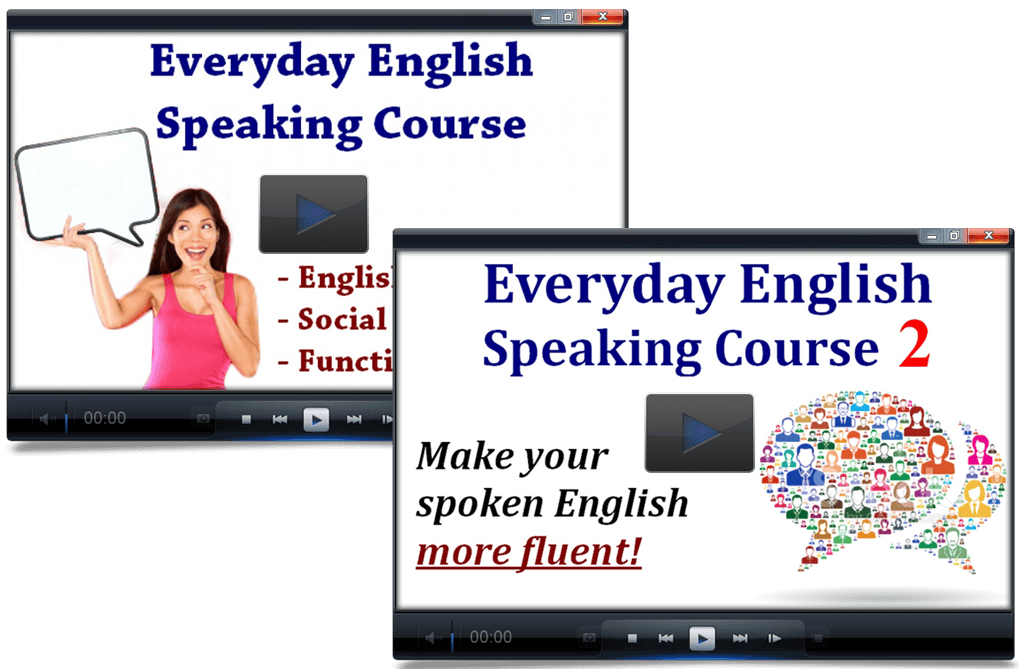
More Espresso English Lessons:
About the author.
Shayna Oliveira
Shayna Oliveira is the founder of Espresso English, where you can improve your English fast - even if you don’t have much time to study. Millions of students are learning English from her clear, friendly, and practical lessons! Shayna is a CELTA-certified teacher with 10+ years of experience helping English learners become more fluent in her English courses.
You are using an outdated browser. Please upgrade your browser or activate Google Chrome Frame to improve your experience.
8 Tools for Talking About School in English
It can be a good idea to practice talking about school in a language if you want to study it in a classroom setting .
This means that if you’re a student of English and you plan to go to an English-speaking university , you need to know your academic English .
In this post, we’ve got a great list of resources that will help you to start talking about school with your friends and beyond.
LearnEnglish Kids by the British Council
Learnenglish for adults, talkenglish.com, english conversation practice with mark kulek, learn english with englishclass101, “making connections” by cambridge university press, memrise graduate school english, and one more thing....
Download: This blog post is available as a convenient and portable PDF that you can take anywhere. Click here to get a copy. (Download)
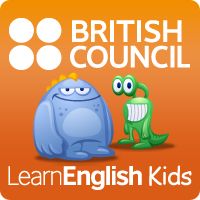
Best for: Young beginners
LearnEnglish Kids is a website that uses videos, stories and activities to help children improve their English skills . So this may be a good site to look at with your kids if they’re learning English.
Along with a number of other interesting topics, LearnEnglish Kids covers school-related subjects, including:
- How to talk about school and use classroom English.
- How to talk about books and reading.
- Vocabulary covering recess and playing on the playground.
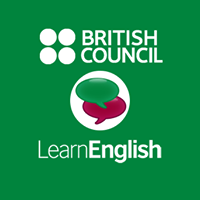
Best for: Pre-intermediate and intermediate students
LearnEnglish is also a complete website that uses interactive exercises and multimedia to help second-language speakers improve their English skills. But unlike the kids’ version, this site is designed specifically for adults and covers real-world topics that they can relate to, like business English and IELTS prep.
If your goal is to learn how to talk about school-related topics, take a look at these three activities:
- School and classroom vocabulary.
- A reading exercise on student protests.
- A podcast episode talking about high school exams.
All three of these activities have additional exercises at the bottom of the page (Task 1, Task 2, etc.). Click on each task for a new exercise, so that you’re able to get a little extra practice with each lesson.
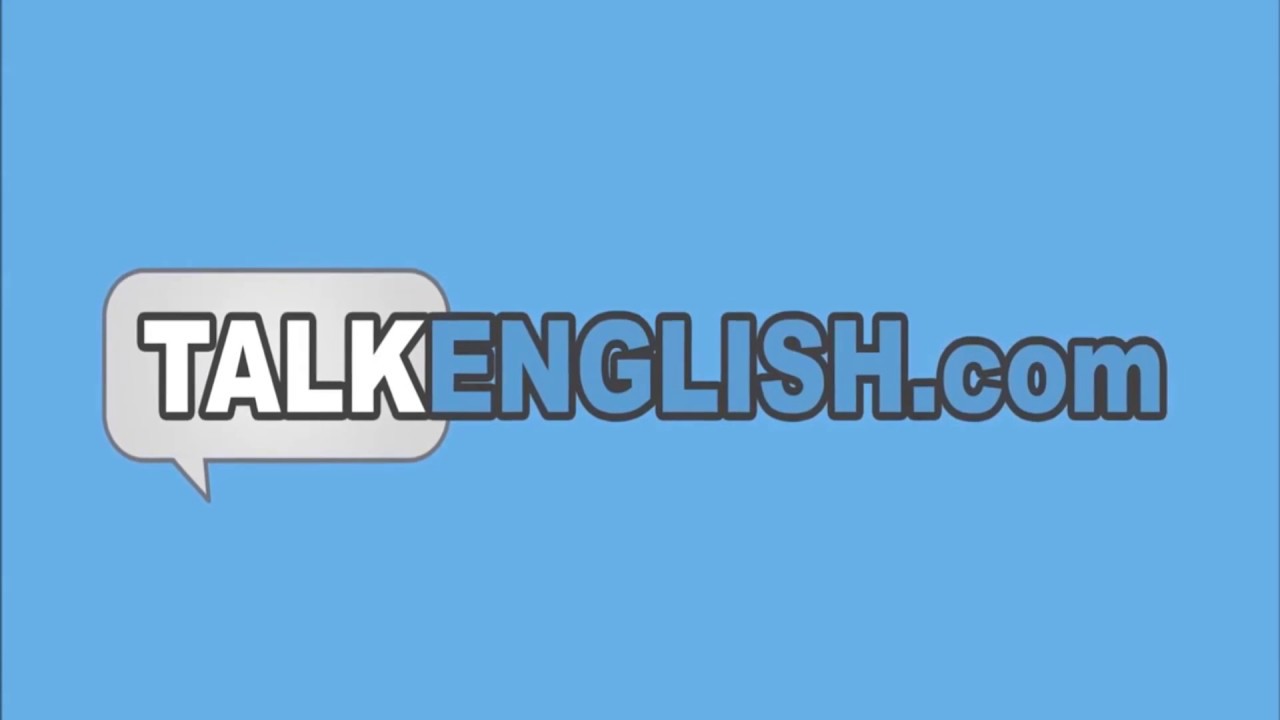
Best for: Intermediate and advanced students
TalkEnglish.com is filled with free, in-depth lessons to help students improve their English conversation skills. In addition to a number of other interesting lessons, TalkEnglish has lessons covering school and education, including subjects like:
- Children and school (a lesson on public schools, private academies and homeschooling).
- Different ways the word “school” is used in sentences.
- Different ways the word “class” is used in sentences.
In addition to sample sentences and reading passages, TalkEnglish also has recordings of the English sentences and paragraphs used in every lesson. This is great for practicing your pronunciation and improving your listening skills while you learn how to have conversations about school.
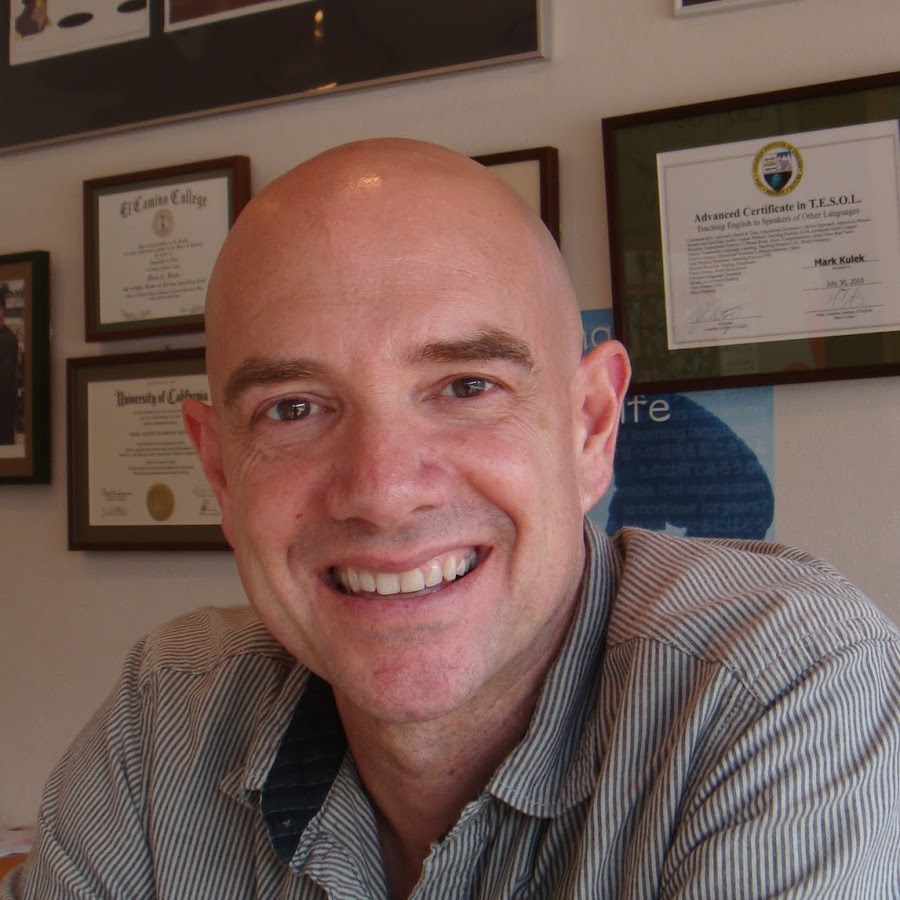
Best for: Beginner and pre-intermediate students
Mark Kulek’s YouTube channel is perfect for memorizing vocabulary words and learning how to use them in the correct context, in addition to learning basic conversational skills. Overall, this channel is designed to help ESL students speak naturally and learn how to communicate with native English speakers.
The nice thing about Mark’s channel is how he focuses on a variety of different topics, including subjects that can help you learn how to hold basic conversations around school and education.
Some of these lessons include:
- English speaking practice at school (in a 24-minute video that drills classroom vocabulary and teaches you how to use these words in short sentences).
- School supplies vocabulary , or vocabulary for the basic items found in the classroom and around the school.
- School rules , which is great for students taking English classes for the first time. This video goes over some of the common rules found in English-speaking classrooms.

Best for: Intermediate students
EnglishClass101 uses videos to help students learn English and improve their general conversational skills. Here, you can listen to natural conversations between English speakers and learn how to talk just like they do. By signing up on their website, you’ll receive access to hundreds of audio and video lessons, along with PDF lessons notes and access to their learner community.
The channel features a number of different topics related to school, such as:
- 10 English phrases for going back to school , including a number of expressions that you’ll encounter when school starts.
- Talking about school subjects in English. In this video, you can listen to a conversation between two English speakers talking about different subjects in school.
- The question “Where did you go to school?” This is a three-minute conversation on school and education. There’s a British English version available as well.
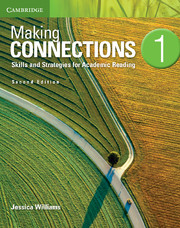
Best for: High beginners up to advanced students
“Making Connections” is a textbook series that helps students improve their academic reading skills so that they’re able to better adapt to (get used to) an English-speaking classroom. While the books don’t teach classroom-based vocabulary like the other resources in this list do, they’re great for learning academic English and preparing for English-speaking schools and universities.
The book series has a total of four levels:
- “Making Connections” Level 1.
- “Making Connections” Level 2.
- “Making Connections” Level 3.
- “Making Connections” Level 4.
The books cover a number of interesting topics, like social studies, history, math and science. They come with a number of reading and vocabulary-building exercises to help you increase your understanding of academic material.

Best for: Highly advanced students
Memrise is a popular language learning app available on computers, Android and iOS devices that uses flashcards to drill vocabulary words, grammar rules and commonly used idioms.
Along with your usual English vocabulary courses, Memrise has a section dedicated to ESL students enrolling in graduate school at an English-speaking university. These courses are for highly advanced students who are already able to speak English fluently, but need to learn technical or scientific terms in order to be able to talk about school-related topics in master’s and doctorate-level classes.
While there are a number of different graduate school English courses available, my favorites are Barron’s Essential GRE Words and the GRE Math review course. Both of these lessons can help you practice your English skills while preparing for your graduate school entrance exam.
With the help of these resources, learning how to talk about education, the classroom and school as a whole can be fun and easy.
If you like learning English through movies and online media, you should also check out FluentU. FluentU lets you learn English from popular talk shows, catchy music videos and funny commercials , as you can see here:

If you want to watch it, the FluentU app has probably got it.
The FluentU app and website makes it really easy to watch English videos. There are captions that are interactive. That means you can tap on any word to see an image, definition, and useful examples.

FluentU lets you learn engaging content with world famous celebrities.
For example, when you tap on the word "searching," you see this:

FluentU lets you tap to look up any word.
Learn all the vocabulary in any video with quizzes. Swipe left or right to see more examples for the word you’re learning.

FluentU helps you learn fast with useful questions and multiple examples. Learn more.
The best part? FluentU remembers the vocabulary that you’re learning. It gives you extra practice with difficult words—and reminds you when it’s time to review what you’ve learned. You have a truly personalized experience.
Start using the FluentU website on your computer or tablet or, better yet, download the FluentU app from the iTunes or Google Play store. Click here to take advantage of our current sale! (Expires at the end of this month.)
Enter your e-mail address to get your free PDF!
We hate SPAM and promise to keep your email address safe

925 English Lesson 13 – Talking about your Education

In today’s 925 English lesson , we’re going to learn English for talking about your education.
Your education is an important part of your background. And there are lots of situations where you might talk about where you went to school and what you studied. A job interview is an obvious one, but you might also talk about your education in casual conversation.
925 English is a new series of English lessons for beginners. 925 English lessons focus on English phrases and expressions that you can use in work and business. Each 925 English lesson features English expressions you can use in different situations and tips on why and how we use them in Business English . Members: PDF Transcript | Lesson Module | Quiz | MP3 Audio
Download: Podcast Video
Related Lessons:

Leave a Comment
Your email address will not be published. Required fields are marked *

“I never let my schooling interfere with my education.” Mark Twain (1835 – 1910), American writer
- October 17, 2020
- General English
- No Comments
Home » Education
Latest lesson plans

LESSON OVERVIEW
This free ESL lesson plan on education has been designed for adults and young adults at an intermediate (B1/B2) to advanced (C1/C2) level and should last around 45 to 60 minutes for one student.
Education is one of the most important issues in any society. The level of education not only determines the future of children, but also plays an important role in determining the success of entire countries. In this ESL lesson plan on education, students will have the opportunity to talk about their own experiences at school and discuss and express their opinions on issues such as the standard of education in their country, the differences between private and public education and whether or not education should be considered a fundamental human right.
This lesson plan could also be used with your students to debate these issues for the International Day Of Education , which takes place in January. For more lesson plans on international days and important holidays, see the calendar of world days to plan your classes for these special occasions.
For advice on how to use this English lesson plan and other lesson plans on this site, see the guide for ESL teachers .
PRE-CLASS ACTIVITIES
Reading activity Before the English class, send the following article to the students and ask them to read it while making a list of any new vocabulary or phrases they find (explain any the students don’t understand in the class):
BBC | “Inequality ‘significantly’ curbs economic growth – OECD”
The article refers to research conducted by the OECD which found that inequality due to a lack of investment in education has a negative effect on economic growth. At the start of the class, hold a brief discussion about what the students thought about the article. What do they think about the issues raised in the article? Do they agree with what was written? Can they think of any ways they might disagree with the content of the article?
Video activity To save time in class for the conversation activities, the English teacher can ask the students to watch the video below and answer the listening questions in Section 3 of the lesson plan at home. There are intermediate listening questions and advanced listening questions so teachers can decide which would be more appropriate for their students. Check the answers in the class.
The video for this class is called “Who Is Allowed To Go To School” by UNESCO and explains the various obstacles many people around the world have which prevents them from receiving an education and what UNESCO’s role is in ensuring this fundamental human right to education.
IN-CLASS ACTIVITIES
The focus in the class is on conversation in order to help improve students’ fluency and confidence when speaking in English as well as boosting their vocabulary.
This lesson opens with a short discussion about the article the students read before the class. Next, the students can give their opinion on the quote at the beginning of the lesson plan – what they think the quote means and if they agree with it. This is followed by an initial discussion on the topic including their experience at school, their favourite subjects and the best qualities in a teacher.
After this, students will learn some vocabulary connected with education such as extra-curricular activities , play truant and flunk . This vocabulary has been chosen to boost the students’ knowledge of less common vocabulary that could be useful for preparing for English exams like IELTS or TOEFL. The vocabulary is accompanied by a cloze activity and a speaking activity to test the students’ comprehension of these words.
If the students didn’t watch the video before the class, they can watch it after the vocabulary section and answer the listening questions. Before checking the answers, ask the students to give a brief summary of the video and what they thought about the content.
Finally, there is a more in-depth conversation about education and society. In this speaking activity, students will talk about issues such as the standard of education in their country, any differences between private and public schools, and what they think about religious and single-sex schools.
After the class, students will write about their opinion of education in their country. This could be a short paragraph or a longer piece of writing depending on what level the student is at. The writing activity is designed to allow students to practise and improve their grammar with the feedback from their teacher. For students who intend to take an international English exam such as IELTS or TOEFL, there is an alternative essay question to practise their essay-writing skills.
DOWNLOAD LESSON PLANS

Did you find this lesson plan useful?
Your English Pal is a free resource to help fellow ESL teachers save time when preparing their classes. If these lesson plans have helped you, and you’d like to help keep the site free, please consider making a small contribution to help cover the site’s costs. Any help you can give is much appreciated!
Leave a Comment Cancel Reply
Your email address will not be published. Required fields are marked *
Save my name, email, and website in this browser for the next time I comment.
Copyright © 2023 Your English Pal
Privacy Overview
EnglishPost.org
My Education in English: Guide, Examples and More
Today we are going to learn how to talk about our education in English including our educational background, majors, and more.
To be able to talk about education, we have to become familiar with the different questions and possible answers related to this topic.
These are some examples of questions
Now, let’s explore all that you need to know to make and answer questions about your educational background in English
Table of Contents
Majors in English
Major or career, expert in something, common questions and answers: past, common questions and answers, key phrases to talk about your educational background, a conversation about your educational background, other english lessons.
Let’s start with the basics, what major are there?
These are some examples of sentences:
- I study Business Administration
- I study languages
- I am in Law School
- I study Psychology
Some students confuse major and career, they are related but they are not synonyms
- I am in the business major
- I have a career in Business
- I finished my major in Marketing in 2008
- I started my career in 2009
You can be specific about your area of expertise
- I studied Business Administration, Now I am an online marketer.
- I studied business and now I work as a restaurant manager.
- I studied administration but now I work in a human resources department
- I studied Information technology, I work as a WordPress developer.
- I studied administration and now I work as a social media marketer
To master this topic, we have to learn what the most common questions and most common responses are:
Let’s start with the questions and answers about the past
- Where did you study in high school?
- I study at the Liceo de Nicoya High school
- Where did you go to university?
- I went to Ulatina University
- What did you study at University?
- I studied English teaching and Business Administration
- Why did you choose your major?
- Because English wasn’t so difficult for me
- When did you graduate?
- I graduated in 2018
Let’s check some questions that deal with the present
- Can you speak any languages?
- I only speak Spanish and English
- Do you have a major already?
- Yes, I do. I have a major in English teaching.
- What do you like the most about your major?
- I like teaching English to adults
- What subjects are you really good at?
- I am good at grammar and pronunciation
- What subject are you terrible at?
- I am terrible with theory
- What can you do?
- I can speak English
- What courses do you have?
- I have administration, public relations, and marketing courses
- Do you have any certificates?
- Yes, I have a C1 Certificate from the Centro Cultural Costarricense NorteAmericano
- Have you taken any computer classes?
- I took beginner classes at University and I took Microsoft Office classes at INA
These are some important terms that can help you speak about your educational background.
- High school diploma
- Major in _______
- I have a degree in _______
- I took some ______ classes
- I can _______
- I have certificate in_______
- I have a _____________ certificate
- I took some____________courses
- I am studying ____________
- I am good at____________
- I am studying in___________
- I am taking ____________ classes
- I have an ___________ degree from the Universidad Latina de Costa Rica
This a short conversation between two teenagers talking about school and some other stuff
I hope this lesson can help you talk about your educational background easily.
These are some lessons that you might be interested in
- How to Introduce Yourself in English
- How to Talk about Your Last Vacation in English
- How to Describe Graphs and Charts in English
- How to Describe your Neighborhood in English
- How to Tell the Time in English
- How to Talk About my Soft Skills
- How to Make Requests in English
I am Jose Manuel, English professor and creator of EnglishPost.org, a blog whose mission is to share lessons for those who want to learn and improve their English
Related Posts

Reading Exercises: Likes and Dislikes

How to Describe Jobs in English

50 Most Common Expressions with Get
Join the global Big Education Conversation
A million inclusive conversations to transform education.
51.50721780
-0.12758620
Shape History
50.90859550
50.39020200
-3.92043100
52.63687780
-1.13975920
Aquayemi-Claude
51.55633000
Pupil Power
53.14745060
-0.21933540
50.87387200
51.27870750
42.29948480
-71.06485290
50.92801430
-0.46170750
VotesforSchools
40.71277530
-74.00597280
Whole Education
41.87811360
-87.62979820
51.33952870
-1.99284450
50.43501540
-4.17171590
51.08519740
-1.79730260
53.48499110
-2.22611390
Children's University
The Edge foundation
51.36976320
-2.37975420
51.78739850
-1.26989640
52.13007740
51.95340340
-1.54360410
51.51887420
-0.13363320
Tortoise Media
51.53576400
-0.90289400
51.59829390
Protection Approaches
54.37312330
-2.81341130
51.57331940
-0.28463730
53.32260100
-3.04684540
52.62925670
Inspiration Trust
51.60857340
-0.18448180
Tuition Kit
50.11544370
-5.54509140
51.57404490
50.91009220
-0.40945770
50.82294020
-0.13626720
Square Peg / Rethinking Education
52.40589620
51.53227360
-0.89558690
51.68326720
-0.69852090
50.80936060
-1.87675560
51.46103870
-0.35603300
52.49986870
-1.86455580
-42.04090590
146.80873220
Flourishing Education
52.63550520
-0.33694690
51.74573400
-2.21775800
University of the West of England
30.25350100
-81.88798840
50.11879800
-5.53759200
Homegrown Learning
52.11596710
-0.26595810
53.47597320
-2.20769970
12.00217940
51.65952250
-4.72350830
Carmarthenshire County Council
51.40935330
-0.21839600
Native Scientist
51.51782440
-0.02010280
-9.42949900
51.52703270
-0.11563090
51.57578850
52.35551770
-1.17431970
51.42818300
-0.85060130
51.53742920
-0.45400040
12.35472200
43.95282400
Pierre-Jean
52.58631790
-1.10635390
Researchers in Schools
52.18656450
National Extension College
53.54046400
-113.49971390
52.53678410
-2.31049040
53.16752570
-4.20310290
51.41834270
-0.24440860
51.40122960
-0.29740900
51.47101450
50.43026440
-3.68839440
ThoughtBox Education
51.42735390
-2.76336400
51.41459870
-0.06706240
52.48624300
-1.89040100
53.51752440
-1.39947230
The Further Education Tutorial Network
50.70016600
-3.53274340
50.81976750
-1.08797690
The Nature Premium campaign
51.72833580
51.58254660
-1.79639930
51.55933300
-0.12850630
Rescue Our Schools
53.31669130
-0.95833890
51.41778280
-2.35883000
Bath Spa University
53.67966530
-1.53067600
50.84514300
-0.15410530
Plug-in Media
52.08050410
-0.55608300
51.57281140
-0.10001590
The Visionaries
51.59302020
-0.16045770
51.54247960
51.87121110
-1.70143170
HeadsUp4HTs
53.63832080
-2.62570710
50.83331290
-0.12959170
51.56350010
-0.13947360
Yes Futures
53.39406850
-2.96969270
Liverpool World Centre
54.43543440
-2.96456180
Cumbria Development Education Centre
54.78603320
-1.56818160
51.77109680
-1.30765580
Family Links the Centre for Emotional Health
53.81451210
-1.62462740
51.74933510
-0.49703030
55.00956010
-1.61820160
Alex Maughan
50.85730670
Community Supporters
51.53733460
-0.57434480
52.44948030
-1.82931860
SafetySmart
51.76586710
-2.23277360
52.32923050
-2.03096150
The Real Executive Coaching Co.
Christopher
51.40958820
-0.30579790
Partnership for Children
53.69585380
-2.47316960
52.41471860
-1.79693100
Digital Innovators
51.81919160
-0.03425450
Bounce Forward
52.38507370
-1.83441520
TechWizard IT Services Ltd
51.71817000
-0.19949800
53.69932300
-2.30443270
52.14632360
Forum for the Future of Education
53.55831240
-2.46462820
53.54185680
-2.53703150
52.68807120
-1.81195510
53.53670700
-2.41758760
53.34296470
-2.12818350
53.40546620
-2.63380590
The Difference
51.34559970
50.61475400
-3.45072420
Cockwood School
52.40508610
Meet the Parents
53.47290310
-2.29959750
Youth Leads UK
51.49899480
-0.08294410
54.52228360
-1.56309270
51.49469290
-0.14146100
Big Education
Educate & Celebrate
52.98156630
-1.12303270
Inspiring Leaders
53.58443190
-2.39479610
Little Bats Learning
50.83157440
-0.18059980
51.18193840
52.49481350
-0.91701590
Pen Green Children's Centre
53.81089620
-3.05203670
53.85560350
-3.03768100
53.37315180
-2.13336960
Moorfield Primary School
53.58150340
-2.65785530
51.16155060
51.51698530
-0.19376150
BC Project Partners
51.74769110
-1.14548640
53.19583100
-0.46798800
Branston Community Academy
51.39834770
Evulve Productions
51.60181740
-0.11471700
Haringey Learning Partnership
53.82164330
-1.56923210
51.59039690
-0.09577270
52.90552190
-1.45083790
YMCA Derbyshire
50.43202330
-3.68369770
Eliza and Jae
53.81594910
-3.05494290
Right to Succeed
50.51658980
-3.75267880
53.76447450
-0.38666340
Kelvin Hall School
53.49519000
-2.27856350
Beacon Youth Centre
51.50754770
-0.14564450
House of Imagination
53.47530620
-2.24210800
52.20160550
51.51374630
-0.14150520
53.47117220
-2.23727880
The Proud Trust
50.43088870
-3.69123270
51.46109570
-0.11932700
52.97814890
-1.15893520
The Ethereal Learning Foundation
50.37545170
-4.13791090
University of Plymouth
-8.81465560
13.23017560
-27.52241910
152.68536490
Raising Changemaker Teens
48.22489560
16.35696500
Teach For Austria
53.41422630
-2.90854060
48.28916950
15.89415570
43.16515640
-80.30111420
Wellness for All
56.13036600
-106.34677100
43.68174480
-79.42704830
People for Education
43.66187290
-79.39283650
-74.05179140
Corporación Colombiana de Padres y Madres Red PaPaz
30.04441960
31.23571160
60.16985570
24.93837900
67.65073240
24.91581970
60.17179120
24.92318340
One Step Ahead (OSA)
-0.18696440
41.70990550
44.74185940
SHE's GREAT! participants
-13.71193120
22.31930390
114.16936110
18.52043030
73.85674370
PES B.ed College
15.29932650
74.12399600
12.90372540
77.53763890
Dream a Dream
77.91429610
23.02250500
72.57136210
-0.78927500
113.92132700
41.87194000
12.56738000
DSchola Association
-1.29206590
36.82194620
Metis Collective
40.34167650
-76.80289330
-0.02355900
37.90619300
Branson&Branson Pharmacies
33.85472100
35.86228500
19.39912100
-99.14146430
52.13263300
Liberal Africa Leadership Dev. Initiatives
-9.18996700
-75.01515200
52.32999940
20.96082190
38.72225240
-9.13933660
CTL ACADEMY
-1.94407270
30.06188510
-1.94027800
29.87388800
Ubuntu Education
-26.20410280
28.04730510
40.53127460
-3.65725420
41.38739740
15.57546230
32.56878540
13.86584920
100.49412850
-6.36902800
34.88882200
37.76182420
-122.39858710
37.09024000
-95.71289100
Boston Public Schools
Big Education Conversation
-33.84626110
151.09080860
Grad Student HGSE
30.35424090
-97.77427020
36.48979340
-105.66471420
Social Emotional Learning Alliance
41.36387100
-70.55029160
37.54642590
-77.46446070
Richmond Loose Play
39.04516630
-77.03917540
Global Education Destinations
40.35729760
-74.66722260
Educational Testing Service (ETS)
34.13503230
-85.13756450
EOF Project
55.37805100
-3.43597300
Lontum Charles
-19.01543800
29.15485700
Brook Of Knowledge Development Agency
-12.07791480
-77.04781120
Enseña Perú
40.26531720
-74.52315530
Peddie school
52.45904140
-1.98317850
Woodhouse Primary Acedemy
54.89414200
-1.92961500
51.39446260
-0.08340730
Beckmead College
50.64698140
-1.17812140
Broadlea Primary
55.23184860
-2.57955620
Kielder Primary
50.91205220
-0.56929310
Bury Primary
53.64320080
-0.74785500
Luddington and Garthorpe Primary School
53.85553880
-3.03782230
Blackpool Youth Council
51.38830470
-0.01812430
Langley Park School
Karmelle, Carolina, Fayo
48.85342750
LearningPlanet Alliance - Sorbonne
55.61163250
12.99003820
Salzburg Global Seminar/ SEE Learning
53.67322080
-1.93725710
Noble + Eaton
51.51836770
-0.18881070
39.67512690
-104.96809140
South High School
-37.81236530
144.97093940
Learning Creates Australia
12.93533540
77.58404690
40.41375030
-79.90888290
Remake Learning
50.43095770
-3.68730040
The Artist Within
30.11231500
31.34385070
Malvern College
45.45500630
-75.59180150
Uniting for Children and Youth; My Life My Education
52.05783480
-1.35166660
Frank Wise School
Griffiths Centre
52.62755110
-1.09143570
52.62762090
-1.09179140
Crown Hills Community College
51.51865850
-0.18882820
25.27109540
82.98241210
Sunbeam Bhagwanpur
40.04083890
-75.42573250
an international philanthropy advising firm
41.39288780
#DiàlegsEducació2030
51.51098310
Winsor Primary School
The Big Education Conversation is supporting people and communities around the world to come together to talk about what education is really for so it can change for the future.
Everyone can take part. Anyone, especially young people, can host a conversation. Select your language to add your voice and get conversation resources.
Is your language not on the list?
@BigEdConvo
Join the conversation on Instagram and across social media #BigEdConversation #millionconversations

Meet the Big Education Conversation Partners

Dean Initiative
.png)
Edúcate Uruguay

Learning Planet Alliance

The Lego Foundation
.png)
One Step Ahead

Restless Development

Salzburg Global Seminar
.png)
Teach For All

Wom-En, Colombia
.png)
YouthxYouth

Zizi Afrique Foundation
The Big Education Conversation is supporting people and communities around the world to come together to talk about what education is really for so that it can change for the future.
Join our mailing list , or for more information email: [email protected].
© 2021 Big Change Charitable Trust Charity No. 1145224
By using this website, you agree to the storing of cookies on your device to enhance site navigation, analyze site usage, and assist in our marketing efforts. View our Privacy Policy for more information.
How do we reinvent education? These TED Talks explore the latest thinking — from teachers, parents, kids — on how to build a better school.
Video playlists about Education

The Butterfly Effect: Talks from the TEDinArabic Summit

A love letter to science

The pursuit of curiosity and understanding

The most popular TED Talks in Hindi
Talks about education.
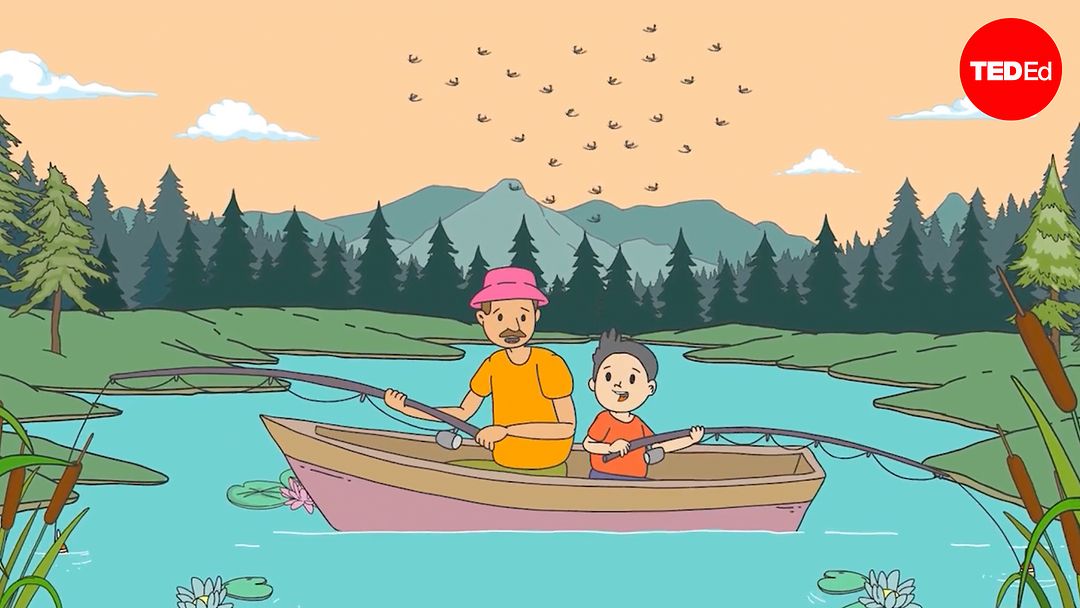

If you're an adult mayfly you'll probably die before the end of this video
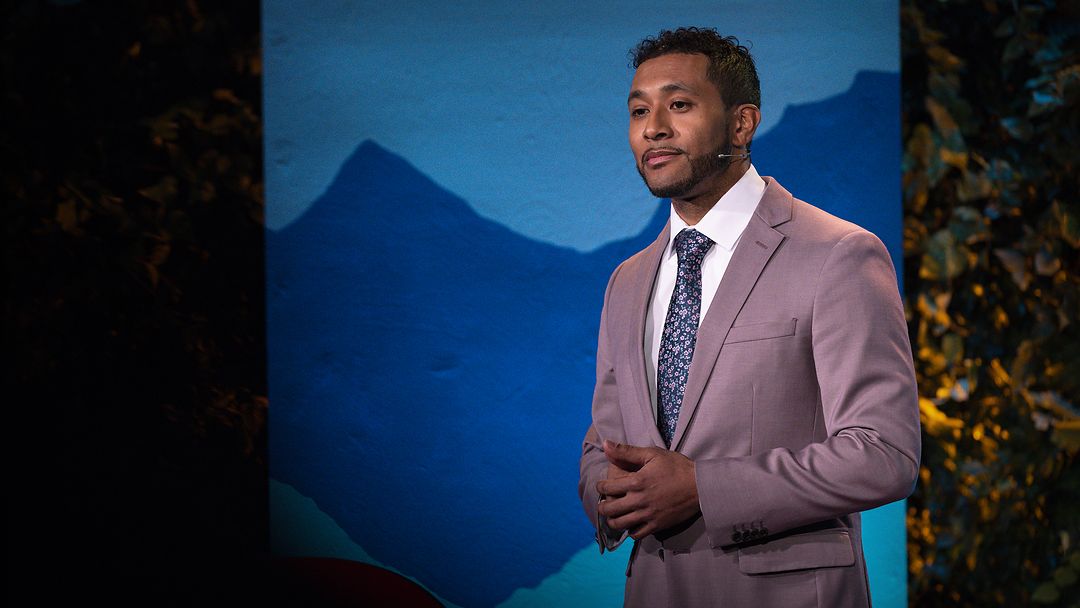
The US has a teacher shortage — here's how to fix it

How to increase your happiness
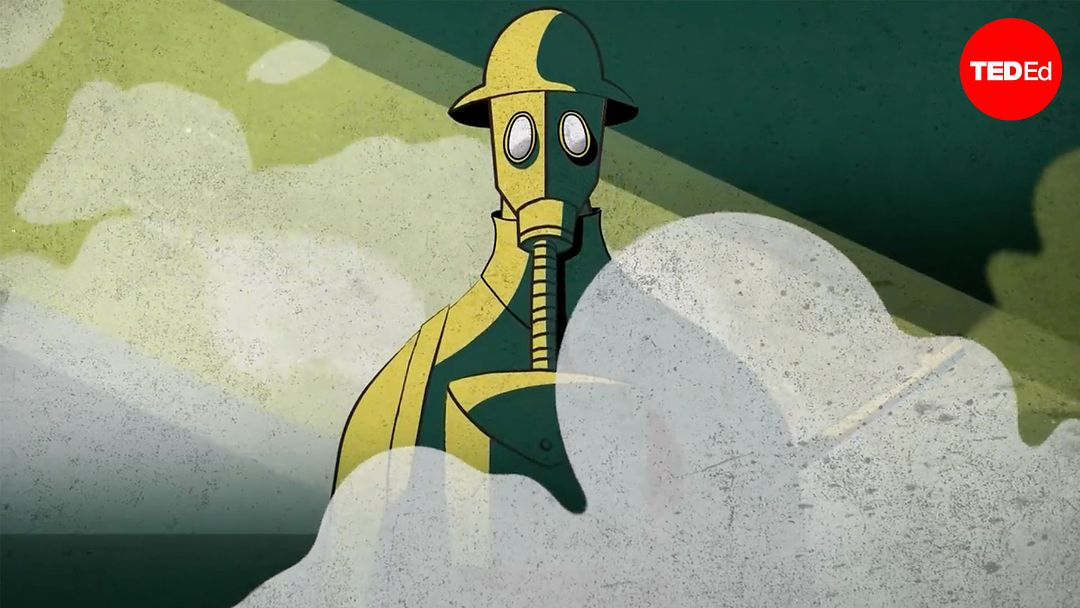
How do gas masks actually work?

The rise and fall of the Maya Empire’s most powerful city

Does math have a major flaw?

3 easy steps to build a real utopia

The Nazis recruited to win the Cold War
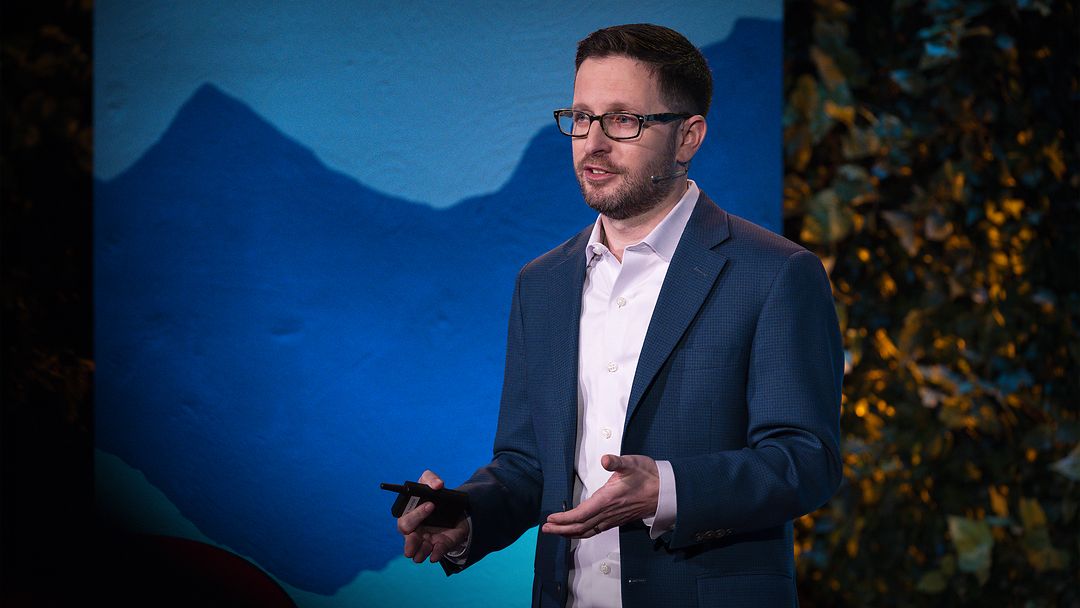
3 strategies to address the teacher shortage crisis

How to prevent political corruption

The true story behind the legend of the 47 Rōnin

This person isn't actually screaming
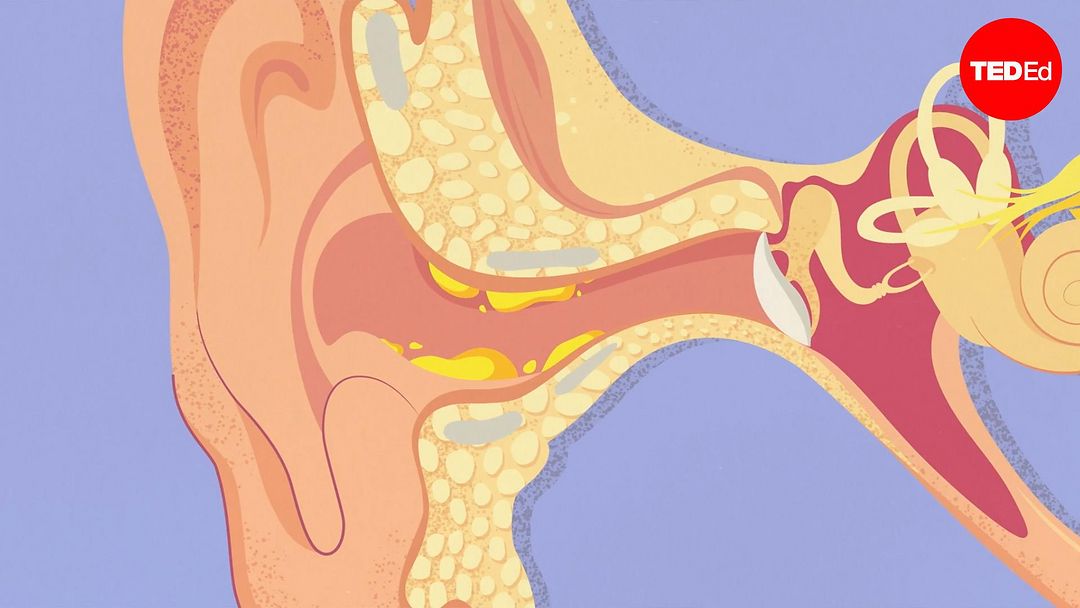
What is earwax — and should you get rid of it?
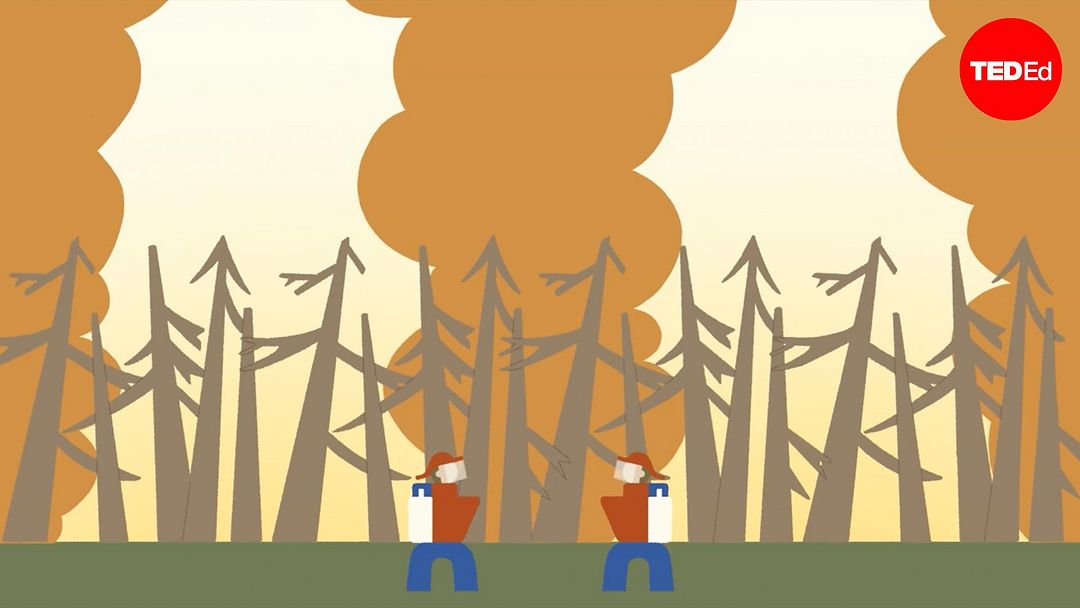
What Earth in 2050 could look like

The Greek myth of Demeter's revenge

The underground cities of the Byzantine Empire
Exclusive articles about education, even gritty people get discouraged, here’s one way to make solar energy more affordable and accessible: share it with your neighbors, how to raise emotionally intelligent kids.
- Skip to primary navigation
- Skip to main content
- Skip to primary sidebar
- Skip to footer
StoryLearning
Learn A Language Through Stories
40 Amazing Conversational English Topics To Kick-Start Discussions In English
Would you like to have conversations in English but don’t know what to talk about?
Don’t panic.
In this post, I’ll share some of the best conversational English topics that you can discuss with native speakers, teachers, or other learners.
Asking and answering questions is key to having an enjoyable conversation in English. So you’ll find some example questions that you can use for each of these conversational English topics.
These will help you practise your conversational skills and connect with others, so you can improve your speaking and learn from other people too.
Let’s check out these 40 conversational English topics!
1. Travel And Tourism
Discussing travel experiences is a great way to practice English. You can describe places, activities, and cultures. You can talk about holidays, places that you’ve visited and would like to visit. And don’t forget to ask for travel recommendations for your next trip!
- What's your favourite place that you've travelled to?
- I’d like to go to___________. Have you ever been there?
- What are your top 3 countries that you’d like to visit?
2. Food And Cuisine
We all love food, don’t we? Talking about food is a universal topic and can lead to discussions about cultures and traditions.
- What’s your favourite restaurant?
- What’s a typical dish from your country that I should I try?
- In my country, we have a typical dish called________. Have you ever tried it?
There's music you hate, music you love and music you don’t care about. Talk about it. You can learn a lot about someone's personality and interests, and you might even discover some new artists that you’ll love.
- Do you like Ed Sheeran?
- What music do you not like?
- Can you play a musical instrument?
4. Movies And TV Shows
Humans love stories because we think in stories. Movies and TV series tell stories so these make the perfect topic for conversation, especially if you’re a movie enthusiast. TV shows are also worth discussing.
- Have you ever watched ________?
- Can you recommend some great TV series?
- Who’s your favorite movie star?
5. Education

Don’t tell me you’ve always liked going to school. This could be a great topic of discussion because you might have some great stories to tell about this topic.
- Tell me about your first day in school.
- How many hours of English do students have?
- Did you / do you like going to school?
Everyone has a hobby. For example, I love learning languages, as you probably know!. I can talk to you about this for hours and I bet you love discussing your hobbies too.
- What do you like to do in your free time?
- What are your hobbies and passions?
- Do you have any hobbies that are unique to your culture?
I love my family and I hope you love yours too. Let’s have a conversation about it.
- Would you like to start a family one day?
- How big is your family?
- How do you spend time with your family members?
Maybe you’re a football fan or a tennis player. Or maybe you don’t do sport but you like watching it on TV. A friend of mine can talk about his favourite football team all night. Can you do that too?
- Are you into sports at all?
- What sports are people crazy about in your country?
- Do you prefer watching sports or doing sports?
9. Technology
Technology is everywhere and we all have our own opinions about it. Some people hate it, some people are addicted to it. This is why technology is a topic that can make anyone talk.
- What’s your relationship with technology?
- Will the world be dominated by robots one day?
- What are the disadvantages of technology?

We’ve all read at least one book in our life and you don’t need to be an avid reader to discuss books (although here at StoryLearning we're a bunch of book lovers!).
By the way, if you like reading, check out these book recommendations for English learners.
- Please give me some book recommendations.
- Do you ever read books in English?
- What book changed your life?
11. Fashion
I have a friend who dislikes the world of fashion but when he buys a new pair of shoes, he’s always keen to talk about them. So, it doesn’t matter if you don’t follow fashion trends. You can always talk about the clothes you like wearing.
- What’s the latest fashion item you bought?
- Do you follow any fashion influencers?
- Who’s your favourite fashion designer?
12. Environment
We should do more to protect our planet. So why not start talking about how we could pollute less?
- Do you think you live in a “green” area?
- What do you think of environmental activists like Greta Thunberg?
- How “green” are you?
13. Culture And Customs
Traditions, celebrations, national events, religion, special days. You can talk about culture and customs for hours.
- Have you ever experienced culture shock?
- What’s your favourite national holiday?
- How is your culture unique?
14. Career And Work
This is a topic that is relevant to most adult learners of English. You can talk about jobs you’ve done, jobs you wouldn’t like to do, and weird jobs that are unique to your country.
- Have you ever had a mean boss?
- Is there a job you wouldn’t like to do?
- Is it easy to find a job where you live?

15. Health And Fitness
I bet you care about your health. I care about mine a lot! So let’s have a conversation about what we do to stay healthy. Be careful though. Asking about someone else’s health might not be polite in some cultures.
- Do you think diets are useful or not?
- What do you usually eat?
- How much do you exercise?
16. Personal Growth And Development
Personal growth and development is a motivational and inspiring topic. Once I even discovered something new about myself simply by talking about this topic.
- What are your life goals?
- What do you do to develop as a person?
- Do you think helping others makes us grow?
17. Teachers
I'm sure you disliked some of the teachers you had but you also have a teacher that has a special place in your heart. Discussing teachers can bring back lovely memories.
- Who's the best/worst teacher you've ever had?
- Would you rather learn from a young teacher or an older teacher?
- Do you think we could learn without teachers?
18. Weekends
People spend their weekends in different ways and weekends are always good topics for conversation. This is especially true at the beginning and end of the working week!
- What was the best and worst part of your weekend?
- What's your ideal weekend like?
- How do people spend weekends in your country?
19. News And Current Events
There’s always something newsworthy that you can talk about. I talk about current news events all the time and this is a conversation topic that will never die.
Questions:
- What's an interesting news story you've recently heard?
- What topics are often discussed in the news in your country?
- Do you think it’s essential to watch the news every day?

20. Life Experiences
This is a great topic to practice the present perfect in English !
Questions :
- Have you ever seen__________?
- Have you ever eaten______________?
- Have you ever played ______________?
21. Favourite People
This topic can include any people (celebrities, writers, athletes, singers, etc.).
- Who’s your favourite writer?
- Who’s your favourite footballer?
- Who’s your favourite movie director?
- Who’s your least favourite artist?
- Who’s your least favourite chef?
A great topic to practise vocabulary for furniture and objects around the house.
- Which room is the most important for you in your home?
- What would your ideal house be like?
- Do you prefer to live in a big or a small house?
23. English
Speak in English about English so you can improve your English. It sounds like a slogan, but it’s true!
- What’s your favourite English word and why?
- Do you have any English learning strategies?
- What’s your favourite website to learn English?
Nobody knows what will happen in the future, but that doesn’t mean that we can’t talk about it. It’s also a great topic to practise future forms.
- What life plans do you have for the future?
- Do you think humans will still be around in 1000 years?
- How do you see yourself in 5 years?

25. Would You Rather…?
This is a question that can get anyone to talk. You can make it fun or serious, up to you. Here are some possibilities.
- Would you rather travel to the past or the future?
- Would you rather have a dog or a cat?
- Would you rather have more money or more free time?
25. If You Could…?
This is one of my favourite questions. It can be adapted to any topic and it’s especially useful if you want to practise the English conditional tense .
- If you could have any superpower, what would it be?
- If you could travel back in time, what era would you visit?
- If you could learn any new skill overnight, what would it be?
26. Friends
A light topic that's useful to practise vocabulary around personality, relationships and activities. You can use it to make new friends too!
- Do you make friends easily?
- What do you like doing with your friends?
- What things should friends never do?
I have many apps and I can tell you my top three favourite apps that I like using and why. I’m sure you can do that too. By the way, if you want to learn English with apps, here are the 20 best apps to learn English.
- What is your favourite app on your phone and why?
- What is an app that you use frequently, but you feel like not many people know about?
- Have you ever developed your own app? If yes, what was it and if not, what kind of app would you like to develop?
28. Social Media
I have a friend who’s on every social media platform that exists. He would be a great conversation partner for this topic!
- How do you use social media in your daily life and which platforms do you use the most?
- What do you think are the positive and negative effects of social media on our society?
- How has social media impacted your personal relationships and connections with others?
29. Personality
We all know what we’re like so we naturally have something to say about our personality. This might be a little hard though because we don’t normally do it, but talking about your own personality can help you discover new things about yourself too.
And it’s the perfect topic to practise advanced English vocabulary to describe characters and personality traits.
- How would you describe yourself in 3 words?
- How do you think your personality has changed or evolved over time?
- Are there any aspects of your personality that you would like to change?
30. Emotions
Simply asking “How do you feel today?” might be all you need to have a great conversion. But here are more questions that you could use to talk about emotions.
- What is one thing that always makes you feel better when you're feeling sad or stressed?
- How do you deal with difficult emotions like anger or frustration?
- What makes you feel bored?
Once I talked with a friend about what loved about his city and he made me fall in love with it too. I think this is a good reason why we should talk about cities.
- What’s your favourite city and why?
- Is your city safe?
- What do you love about your city?
This is a personal topic that can help you make a deeper connection with the person you’re discussing it with.
- What is something that scares you, and why do you think you feel that way?
- Have you ever faced a fear and overcome it? How did you do it?
- How do you typically react when you're feeling afraid or anxious?
33. Weather

This is probably one of the most popular conversational English topics. Don’t talk about it for too long though. Some people don’t find it very interesting!
- What's your favourite season and why?
- What's your favorite type of weather, and why do you like it?
- Do you prefer sunny or rainy weather, and why?
This is a controversial topic. A friend of mine always talks about aliens because he believes in them. I’m not sure, but I don’t mind talking about them.
- Do you believe in aliens?
- Have you ever seen a UFO?
- What do you think aliens might look like?
Telling jokes is an art and you might know some jokes in your first language. Can you tell them in English?
Here’s one: I couldn’t repair your brakes, so I made your horn louder!
- Do you have a joke that you always tell people?
- Have you ever heard a joke that you didn't find funny, but others around you did?
- What jokes do you not like?
36. Stereotypes
Stereotypes are often based on false assumptions about certain groups of people. If you talk about them, you might discover why these ideas are not correct. This is a topic that can really help you build an open mind.
- What is a stereotype that you have heard about your country?
- Have you ever been a victim of a stereotype?
37. Animals And Pets

This is a topic that anyone who has a pet would love talking about!
- Do you have any pets? If not, would you like to have one?
- What's your favorite type of pet?
- Have you ever had a funny or interesting experience with a pet?
What do you think of when you think of “art”? A friend of mine can’t think of anything but paintings. But there are many forms of art that you can talk about: music, sculptures, literature, theaters, and many others. Oh, and you don’t need to be an artist to have a conversation about art.
- What is your favourite type of art?
- Have you ever created any art yourself?
- What do you think makes art valuable or important in our society?
Not everyone is into cars, but if you meet someone who likes them, you might have a never-ending conversation with them!
- What car do you own?
- What’s your favourite type of car?
- Do you like car racing?
40. Childhood
I could spend entire nights telling you about my childhood memories. Is it the same for you?
- What is your earliest childhood memory?
- Did you have any favorite childhood toys or games?
- Did you have any childhood heroes?

Conversational English Topics To Kick-Start Discussions
What do you think of these conversational English topics? Do they make you feel like you want to go out there and have conversations?
Having conversations in English can open a whole new world of opportunities.
So, don't be afraid to put yourself out there and start talking.
The more you talk, the more you will learn, and the more doors will open up for you!
If you need a little bit more help to start speaking, check out these common English phrases to sound more natural when you speak.
Language Courses
- Language Blog
- Testimonials
- Meet Our Team
- Media & Press
Download this article as a FREE PDF ?
What is your current level in Swedish?
Perfect! You’ve now got access to my most effective [level] Swedish tips…
Where shall I send the tips and your PDF?
We will protect your data in accordance with our data policy.
What is your current level in Danish?
Perfect! You’ve now got access to my most effective [level] Danish tips…
NOT INTERESTED?
What can we do better? If I could make something to help you right now, w hat would it be?
Which language are you learning?
What is your current level in [language] ?
Perfect! You’ve now got access to my most effective [level] [language] tips, PLUS your free StoryLearning Kit…
Where shall I send them?
Download this article as a FREE PDF?
Great! Where shall I send my best online teaching tips and your PDF?
Download this article as a FREE PDF ?
What is your current level in Arabic?
Perfect! You’ve now got access to my most effective [level] Arabic tips…
FREE StoryLearning Kit!
Join my email newsletter and get FREE access to your StoryLearning Kit — discover how to learn languages through the power of story!
Download a FREE Story in Japanese!
Enter your email address below to get a FREE short story in Japanese and start learning Japanese quickly and naturally with my StoryLearning® method!
What is your current level in Japanese?
Perfect! You’ve now got access to the Japanese StoryLearning® Pack …
Where shall I send your download link?
Download Your FREE Natural Japanese Grammar Pack
Enter your email address below to get free access to my Natural Japanese Grammar Pack and learn to internalise Japanese grammar quickly and naturally through stories.
Perfect! You’ve now got access to the Natural Japanese Grammar Pack …
What is your current level in Portuguese?
Perfect! You’ve now got access to the Natural Portuguese Grammar Pack …
What is your current level in German?
Perfect! You’ve now got access to the Natural German Grammar Pack …
Train as an Online Language Teacher and Earn from Home
The next cohort of my Certificate of Online Language Teaching will open soon. Join the waiting list, and we’ll notify you as soon as enrolment is open!
Perfect! You’ve now got access to my most effective [level] Portuguese tips…
What is your current level in Turkish?
Perfect! You’ve now got access to my most effective [level] Turkish tips…
What is your current level in French?
Perfect! You’ve now got access to the French Vocab Power Pack …
What is your current level in Italian?
Perfect! You’ve now got access to the Italian Vocab Power Pack …
Perfect! You’ve now got access to the German Vocab Power Pack …
Perfect! You’ve now got access to the Japanese Vocab Power Pack …
Download Your FREE Japanese Vocab Power Pack
Enter your email address below to get free access to my Japanese Vocab Power Pack and learn essential Japanese words and phrases quickly and naturally. (ALL levels!)
Download Your FREE German Vocab Power Pack

Enter your email address below to get free access to my German Vocab Power Pack and learn essential German words and phrases quickly and naturally. (ALL levels!)
Download Your FREE Italian Vocab Power Pack
Enter your email address below to get free access to my Italian Vocab Power Pack and learn essential Italian words and phrases quickly and naturally. (ALL levels!)
Download Your FREE French Vocab Power Pack
Enter your email address below to get free access to my French Vocab Power Pack and learn essential French words and phrases quickly and naturally. (ALL levels!)
Perfect! You’ve now got access to the Portuguese StoryLearning® Pack …
What is your current level in Russian?
Perfect! You’ve now got access to the Natural Russian Grammar Pack …
Perfect! You’ve now got access to the Russian StoryLearning® Pack …
Perfect! You’ve now got access to the Italian StoryLearning® Pack …
Perfect! You’ve now got access to the Natural Italian Grammar Pack …
Perfect! You’ve now got access to the French StoryLearning® Pack …
Perfect! You’ve now got access to the Natural French Grammar Pack …
What is your current level in Spanish?
Perfect! You’ve now got access to the Spanish Vocab Power Pack …
Perfect! You’ve now got access to the Natural Spanish Grammar Pack …
Perfect! You’ve now got access to the Spanish StoryLearning® Pack …
Where shall I send them?
What is your current level in Korean?
Perfect! You’ve now got access to my most effective [level] Korean tips…
Perfect! You’ve now got access to my most effective [level] Russian tips…
Perfect! You’ve now got access to my most effective [level] Japanese tips…
What is your current level in Chinese?
Perfect! You’ve now got access to my most effective [level] Chinese tips…
Perfect! You’ve now got access to my most effective [level] Spanish tips…
Perfect! You’ve now got access to my most effective [level] Italian tips…
Perfect! You’ve now got access to my most effective [level] French tips…
Perfect! You’ve now got access to my most effective [level] German tips…
Download Your FREE Natural Portuguese Grammar Pack
Enter your email address below to get free access to my Natural Portuguese Grammar Pack and learn to internalise Portuguese grammar quickly and naturally through stories.
Download Your FREE Natural Russian Grammar Pack
Enter your email address below to get free access to my Natural Russian Grammar Pack and learn to internalise Russian grammar quickly and naturally through stories.
Download Your FREE Natural German Grammar Pack
Enter your email address below to get free access to my Natural German Grammar Pack and learn to internalise German grammar quickly and naturally through stories.
Download Your FREE Natural French Grammar Pack
Enter your email address below to get free access to my Natural French Grammar Pack and learn to internalise French grammar quickly and naturally through stories.
Download Your FREE Natural Italian Grammar Pack
Enter your email address below to get free access to my Natural Italian Grammar Pack and learn to internalise Italian grammar quickly and naturally through stories.
Download a FREE Story in Portuguese!

Enter your email address below to get a FREE short story in Brazilian Portuguese and start learning Portuguese quickly and naturally with my StoryLearning® method!
Download a FREE Story in Russian!
Enter your email address below to get a FREE short story in Russian and start learning Russian quickly and naturally with my StoryLearning® method!
Download a FREE Story in German!
Enter your email address below to get a FREE short story in German and start learning German quickly and naturally with my StoryLearning® method!
Perfect! You’ve now got access to the German StoryLearning® Pack …
Download a FREE Story in Italian!
Enter your email address below to get a FREE short story in Italian and start learning Italian quickly and naturally with my StoryLearning® method!
Download a FREE Story in French!

Enter your email address below to get a FREE short story in French and start learning French quickly and naturally with my StoryLearning® method!
Download a FREE Story in Spanish!
Enter your email address below to get a FREE short story in Spanish and start learning Spanish quickly and naturally with my StoryLearning® method!
FREE Download:
The rules of language learning.

Enter your email address below to get free access to my Rules of Language Learning and discover 25 “rules” to learn a new language quickly and naturally through stories.
What can we do better ? If I could make something to help you right now, w hat would it be?
What is your current level in [language]?
Perfect! You’ve now got access to my most effective [level] [language] tips…
Download Your FREE Spanish Vocab Power Pack

Enter your email address below to get free access to my Spanish Vocab Power Pack and learn essential Spanish words and phrases quickly and naturally. (ALL levels!)
Download Your FREE Natural Spanish Grammar Pack
Enter your email address below to get free access to my Natural Spanish Grammar Pack and learn to internalise Spanish grammar quickly and naturally through stories.
Free Step-By-Step Guide:
How to generate a full-time income from home with your English… even with ZERO previous teaching experience.
What is your current level in Thai?
Perfect! You’ve now got access to my most effective [level] Thai tips…
What is your current level in Cantonese?
Perfect! You’ve now got access to my most effective [level] Cantonese tips…
Steal My Method?
I’ve written some simple emails explaining the techniques I’ve used to learn 8 languages…
I want to be skipped!
I’m the lead capture, man!
Join 84,574 other language learners getting StoryLearning tips by email…
“After I started to use your ideas, I learn better, for longer, with more passion. Thanks for the life-change!” – Dallas Nesbit
Perfect! You’ve now got access to my most effective [level] [language] tips…
Perfect! You’ve now got access to my most effective [level] [language] tips…
Join 122,238 other language learners getting StoryLearning tips by email…
Find the perfect language course for you.
Looking for world-class training material to help you make a breakthrough in your language learning?
Click ‘start now’ and complete this short survey to find the perfect course for you!
Do you like the idea of learning through story?
Do you want…?

How to Ask About Someone’s Education in English

People are usually uncomfortable talking about their educational qualifications if there is no valid reason. However, if you are an interviewer, you may need to ask the candidates about their education. Also, there are other unavoidable circumstances when you may need to ask about someone’s education.
In this post, I’ll discuss different situations when you can ask people about their education. I’ll also share some expressions and tips to ask about someone’s education. So, Keep reading the post.
As a general rule, you can say, “What is your latest degree?” or “What degree did you pursue?” or “Which university did you go to?” To ask someone about their education, you may ask about their level of education, their degree, and the place they studied.
Are you looking for a book or a guide to help you learn and improve your English? You may try English Made Easy Volume One: A New ESL Approach: Learning English Through Pictures (Amazon Link) .
Table of Contents
Be indirect, whenever possible, compliment them first, then ask, be polite in your words, tone and body language, consider the formality of the situation, general expressions to ask about someone’s education, how to ask about someone’s level of education, how to ask about someone’s degree, how to ask about someone’s place of education, sample conversation: asking about someone’s education in english, in conclusion, 10 frequently asked questions related to asking about someone’s education in english, 4 tips to ask about someone’s education.
Some people may feel offended if you ask them about their education. Therefore, you must handle this question with utmost sensitivity as you do it while asking someone about their age . You must not ask them about their qualification in such a way that it makes them uncomfortable.
Here I’ll give you some tips to do so.
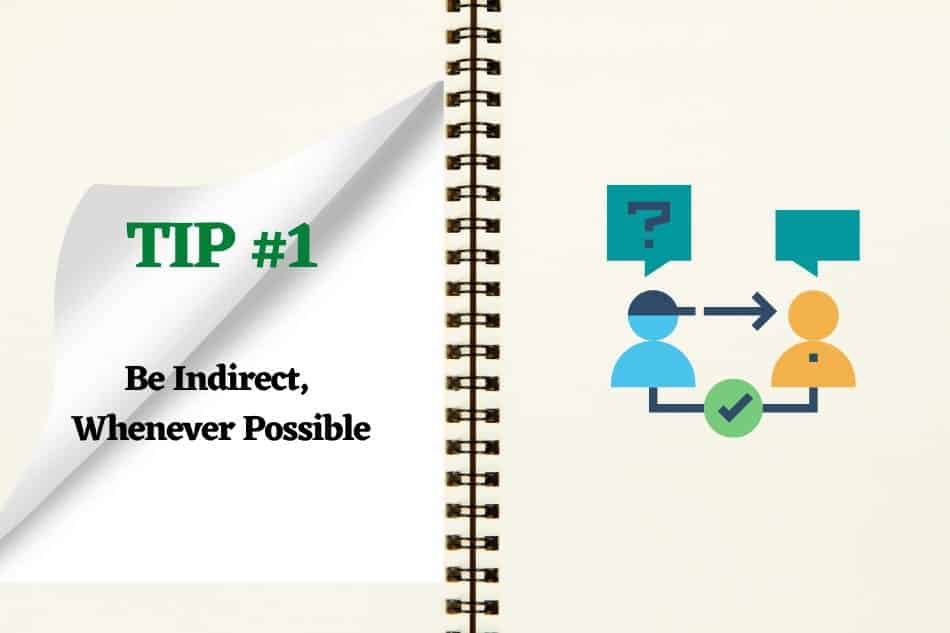
You may need to ask people about their educational qualifications in different situations. Sometimes, you cannot directly ask people what their education level is. In most cases, when you meet someone for the first time or you are in a formal setting, you should ask people indirectly about their education.
However, I would always suggest you not to ask about someone’s education if you don’t need to know or if you don’t have a good reason to ask.
However, if the situation allows you to ask anything directly about someone’s education, you certainly can do it.
For example, if you are looking for some English graduates to form an ESL Advice Community to help ESL learners, you can surely ask interested people about their education.
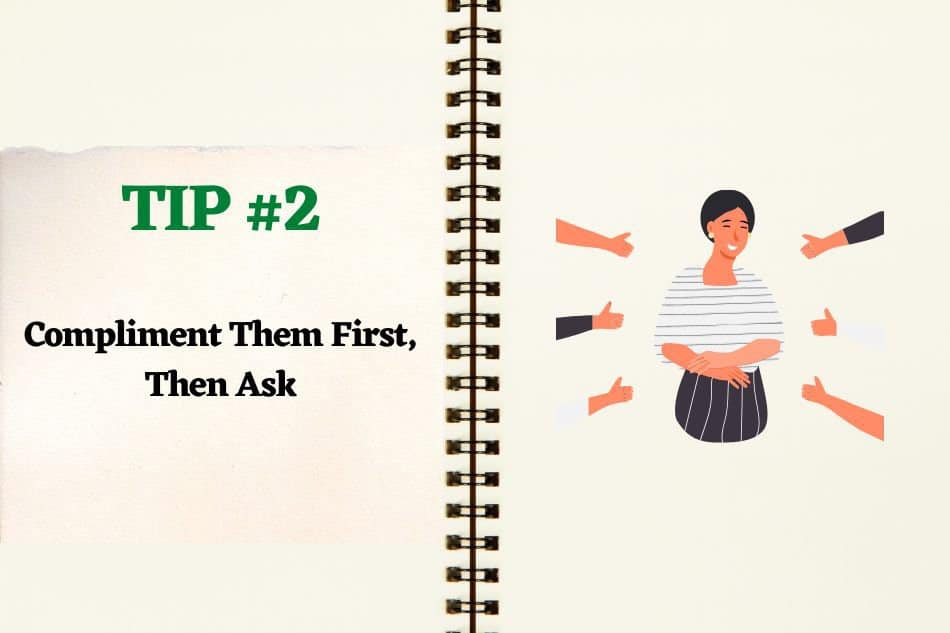
On many occasions, we may feel curious about someone’s education for so many reasons. For example, suppose you meet a man for the first time and find him very knowledgeable about English literature. In that case, you may feel like asking whether the person has studied literature at college or not.
So, here you should first appreciate him for his knowledge of literature. Then you may ask him in a tone of asking for permission if it’s ok to ask him about his education.
People like compliments more than anything. So, if you can compliment them on something and then ask about their academic interests, they might not get offended.
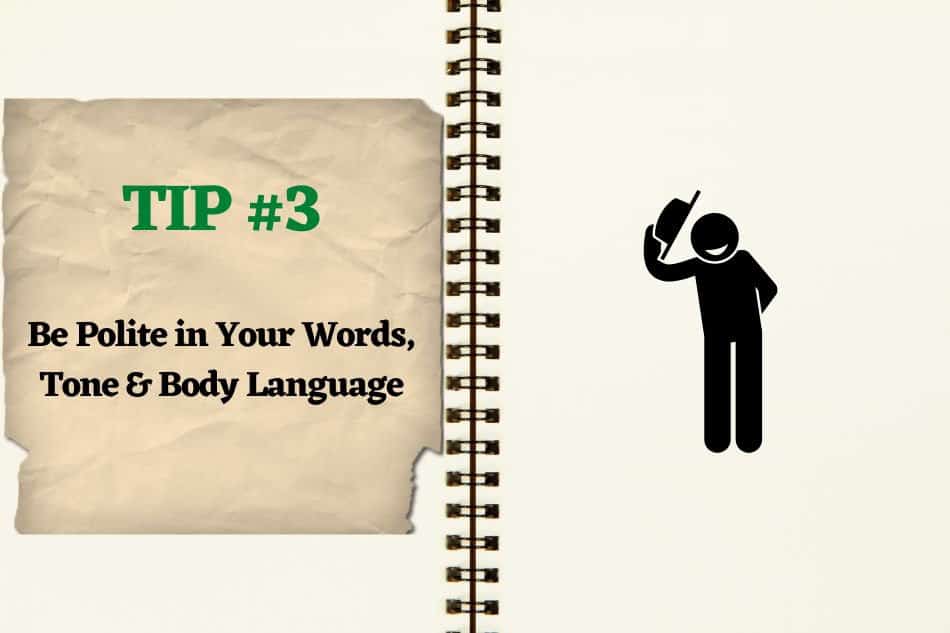
Politeness is the key to any conversation. Whether you are talking to someone for the first time or talking to someone younger than you, you must remain polite. Now, the question is, how can you ensure politeness?
Well! While we talk to someone, there are three core areas that we can focus on to ensure politeness, and they are choice of words, voice tone, and body language .
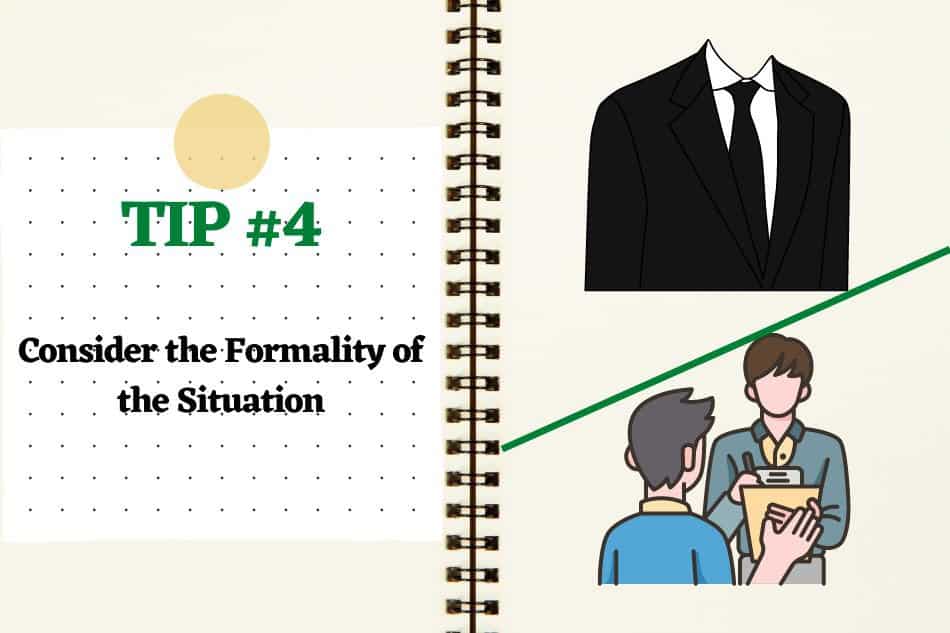
Context is crucial while you talk. For example, asking someone about their education in a job interview differs from asking someone you meet at your friend’s birthday party.
You should first understand where and to whom you are talking to. Once you know whether the situation is formal or informal, act accordingly.
Remember! When you ask someone about their education, they are not bound to answer. So, make sure you politely request them rather than force them to respond.
In the later part of the post, I’ll share some expressions you can use to ask someone about their education.
- You speak English very well. May I know your educational background?
- I find your ideas regarding marketing unique. Are you a business graduate?
- I think philosophy was your major in college. Your words are of good depth.
- Did you study literature in university? Your references are outstanding.
- I think you pursued a degree in this. Am I right?
- You seem to know so much about science & technology; what did you study in college?
- Would you please tell me about your recent academic accomplishments?
- Is it ok if I ask you about your academic interests?
- Is it possible for me to ask you about your educational background?
- Would you mind if I asked about your education?
- Do you mind telling me about your qualification?
- What are you studying at university?
- What do you study?
- May I know your educational qualification, please?
- Would you mind telling me about your education?
- What is your qualification?
- Do you have any certificates of higher education?
- What is your educational background?
- Did you attend university?
- What level of education are you currently in?
- What is your level of education?
- Can you share your educational details?
- What is your education level?
- Do you mind if I ask about your education?
- Would you mind telling me what your latest degree is?
- May I know what your major is?
- What degree did you pursue?
- What’s your recent degree?
- What is your Degree?
- You speak very strongly – have you studied this subject?
- You seem to know so much about this topic; what did you study in college?
- What was your major in college?
- You speak very confidently-have you studied this topic?
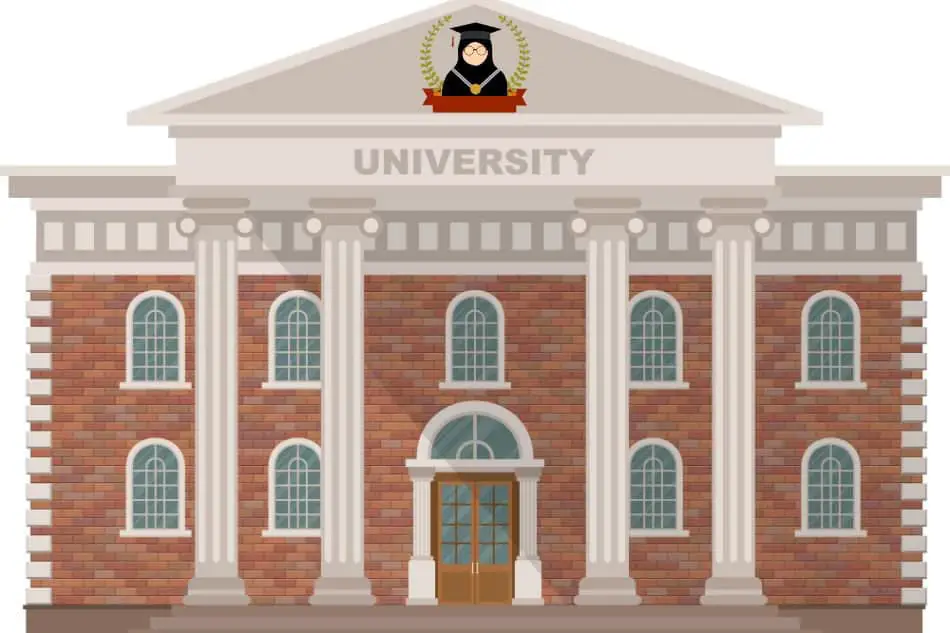
- Your English is excellent – where did you learn it?
- Which college did you go to?
- Which university are you studying in?
- Which college did you attend?
- Your English seems so polished. Where did you learn it?
- Where did you complete your education from?
- Which institution did you attend?
Situation: At a networking event, Maya, a software developer, meets Liam, a business analyst. They engage in a conversation about their educational backgrounds.
Maya: Hi Liam, it’s great to meet you. I’ve always been curious about the educational path for a business analyst. Where did you go to school?
Liam: Hello Maya! It’s a pleasure. I went to Stanford University and majored in Business Information Systems. How about you? What’s your educational background?
Maya: Oh, Stanford! That’s impressive. I studied Computer Science at MIT. Did you also pursue any postgraduate studies?
Liam: Yes, I did. I got my MBA from Harvard. It really helped me understand the business side of things better. What was your experience like at MIT?
Maya: It was challenging but rewarding. The tech environment there is unparalleled. It’s interesting how our fields intersect in many ways.
Liam: Absolutely! It’s always beneficial to have a holistic perspective, understanding both the technical and business aspects.
In many cultures, asking about someone’s education can be very offensive. And many people don’t feel comfortable talking about their education. So, you should not ask someone about their education if it’s unimportant.
However, if you need to do so, you should use the above English expressions and follow my tips.
Thanks for reading.
Happy learning!
1. Why might someone be interested in asking about another person’s education?
Asking about education can help understand a person’s academic background, interests, and potentially shared experiences or alma maters.
2. What are some common ways to inquire about someone’s education?
You can ask, “Where did you go to school?”, “What did you major in?”, “Did you enjoy your college experience?”, or “Have you pursued any advanced degrees?”
3. How can tone influence the way I ask about someone’s education?
A friendly and genuinely curious tone ensures that the question comes across as an attempt to know the person better rather than prying.
4. Are there situations where it might be inappropriate to ask about education?
In settings where academic achievements might be a sensitive topic, or if it’s irrelevant to the conversation, it’s best to avoid such inquiries.
5. How can I share my educational background without sounding boastful?
Be genuine and share your experiences as part of the conversation, focusing on experiences and learnings rather than accolades.
6. Are there cultural nuances in asking about someone’s education?
Yes, in some cultures, discussing personal achievements or academic backgrounds might be reserved for closer relationships or specific contexts.
7. How can I ask about someone’s education if I’m considering them for a job role?
In a professional setting, you can ask, “Can you tell me about your educational background and how it prepared you for this role?”
8. Is it okay to ask follow-up questions about someone’s education?
Certainly! Asking about specific courses, professors, or extracurricular activities can lead to a richer conversation.
9. How can I handle situations where someone’s educational background is vastly different from mine?
Approach the conversation with curiosity and openness, focusing on learning from the other person’s unique experiences.
10. Why is it essential to respect all forms of education and not just formal degrees?
Every educational experience, whether formal schooling, vocational training, or self-taught skills, brings value and unique perspectives. It’s crucial to recognize and respect diverse educational paths.
Related Posts

How to Negotiate Salary During an English Job Interview

10 Other Ways to Say “Have a Good Day!”
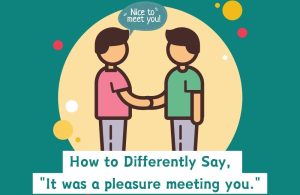
How to Differently Say, “It was a pleasure meeting you.”

How to Express Agreement in English: A Complete Guide
Niaj A A Khan
Niaj A A Khan is an ESL Instructor with over 8 years of experience in teaching & developing resources at different universities and institutes. Mr. Khan is also a passionate writer working on his first book, "Learn English at Ease."
Leave a Comment Cancel reply
Save my name, email, and website in this browser for the next time I comment.
📖 Join our community - for free! 📖


- All Lessons
- business english
- comprehension
- culture & tips
- expressions
- pronunciation
Getting a job – How to talk about your education
Test your understanding of this English lesson
171 comments.
Dear Mrs.Rebecca, First of all, I would like to thank you for responding to my comment by saying all the teachers work full-time besides engvid.I really appreciate for taking time reply. Thank you very much for all of your video lessons. They are really very useful. Could you, please tell us rules that govern the maintenance of tenses and speeches in academic essay writings. I would be thankful, if you go into depth of the details of essay writing.This has been my long standing request to all the teachers for long time. Kindly make a video lesson which would last atleast for about 15 minutes. Thank you very much once again!!
Very useful lesson Rebecca, now I can talk about my educational qualifications.
Thanks a million, kind regards.
thank you very much ms.Rebbeca.. it is very helpful lesson.. i don’t study at the universty yet , but I think that will help soon ..
Then make it dude. . .
thank you very much !!!!! this lesson is so helpful .. im learning a lot (: could you teach the difference between of and from please??!!!!
thank you so much MRS.Rebecca, could u tell me if there is a mistake in these sentences : 1- I have a BS in Telecom Engineering from Damascus University 2-I graduated from the university of Damascus with BS in Telecom Engineering. 3- I was awarded a BS in Telecom Engineering by Damascus university. 4- I completed a BS in Telecom Engineering at Damascus university. my best wishes.
In my opinion , your sentences are OK
Am I right Mrs. Rebeca
sentence 2,there is a mistake,add the ‘a’ before BS, so it should be ‘with a BS’
in a few months I will graduate from EngVid. LOL. all the best 4 u lovely Rebecca. greeting from Mexico, viva Canada too.
hey rebecca how are you doing first of all thank you very much for this video not just this but for all the video any way please rebecca i have a qestion for you please when i tried to writ something or when i heared something and i want to put it down i found it it’s very deffeculte please can you help me to overcome this problem please as soon as possible thank you very much again god bless you
It’s my first time I learn about telling education, thank you Rebbeca. And I would introducing my education. I obtained an MM in Management from Padjadjaran University.Is it correct?
I am in Australia since two months now, and I think people use “Uni” for “University”. I that specific to Australia or is it commonly used, or just correct and understood?
Thank you for your answer :) Clement
Dear Clement! Uni for university is used everywhere round the world.
Thanks I learned it.
Thanks you ;)!!! I’m already got it ^^
Thanks alot
Rebecca, what should we say if we want to find out more about someone’s education. How can we ask some person a question about this. Is it correct if I say Where did you graduate from? These are very rare question, and almost I’ve never heard that one person asked another about this. Please respond ASAP!
Can I say: “I am graduated from …” ?
Thank you so much for your nice efforts.
i need a quiz
Hi I’m interested for taking an English course in Canada do you have courses?
Very helpful! Great job and thank’s for all! But unfortunatly I didn’t find the quiz you talk about it…
thank you very much Rebecca
Thank you so much.
hi,Teacher Ribecca! Your lessons are very helpful! but i have confused words,could you explain me about the way to use “because” and “since” with mean is reason?
Excellent no words to descibe,…
hi rebecca is it correct to say i have a BA in economics .i’m looking forward to your answer thanks
hi rebecca thank you for this lesson .is it correct to say i have a BA in economics
thanks for this high effor
Dear Teacher Rebecca thanks of your effective teaching I answered all 10 question easily& correctly and got 100 thanks of your teaching.
Thank you for your efforts, they help me a lot.
I want to ask about the vocabulary of the BTS Conductor …. could u help me Rebecca :) ? thnx :)
dear rebecca made in p.r.o.c what does it mean ? it means = people’s republic of china = but in fact according to me it must be public republic of china is not it ? how can you explain it to me please l need your explanation best wishes from turkey murat
Dear Mrs.Rebecca,
About clients and customers, the big companies who buy stuffs, (small parts of a big equipment, for instance, from other small companies (suppliers) are “clients” os “customers”?
hi guys very nice
Hi Rebecca, Thank You very much for your work. You have a great idea and I want to say THANK YOU. Thant is all. Have a nice day. Andrej
I am a high school graduate. Will you explain how to explain the case more lower education?
dear Rebecco! first of all i woul like to thanks you for your humanitarian services, so i want to join with your side, and i love to be your student, i dont know it will be approved or not? so my name is Gulaqa from Afghanistan- Bamyan province, so your lessons and guide, excitung me to start learning english please help me dear nice teacher, so bye for now
Rebecca, what do you think is the best way to discover problem at myself? Namely, I know more than 20000 the most frequently used words in english, but when I want to speak it goes nicely, but not as well as I’d like, I’d like to speak more fluently, like a native english speaker. What would you suggest me to do in order to achieve this result? Thank you. . .
ms.rebacca, you are doing a good job. this is my question, in fact i have a answer for you and you need make a question for that…
“barak obamaa is the 25 th president of america”
please give me a question for this answer… i awaits your reply… thanks
Rebecca, very nice class! Very good job!!
great work you have done thanks for this helpful lesson.
Think You Mrs Rebbeca.For helping me with english.
I got a BA in sociology from KFU (:
At first,I would like to thank you for your helpful, I’m very happy to have a nice teacher,such as you,I like also your accent .Please could you tell me where is quiz?Because I didn’t find it
it is kinda hard to learn English according to Turkish people like me :)
This is a great lesson..
Thank you so much Rebecca..
HI Rebecca, I think you are the best teacher! Could you please teach me HOW can I pronounce the letter “J” as in Job, enjoy, Japan..It is almost impossible for me to say it right. My teacher tried to teach me, but I did not get it. Thanks Rebecca…I really need your help, please!
Thank you very much for this helpful lesson. Could someone from ENGVID add the quiz please? There is no quiz when I looked for it. Thanks.
Hi,James you are a very good teacher.From your lesson,I studied a lot and hope I will speak very fluintly.Thank you very much
Thanks you very much!!GOD BLESS YOU
Many thanks Mrs. Rebecca, It is a very interesting topic and it’s so helpful too. Warm Greetings from Perú.
thanks a lot
I got BA degree form peshawer university.
thank you so much rebecca
hi!Rebecca.Could you tell me what is formal way and informal way about the lesson above.
hi mrs rebecca , thank u for this lesson but iwanna know how can i talking about my studyy noww ?? i havent finished my study yet how can i talk about this thing? , thank u soooo
thank you very much Rebecca. so simple way to pass info. good luck. waiting for more.
Hi Rebecca, I liked this lesson, but I confess that I found a bit confussing.I’ll listen again.Thank you.Hugs from Brazil.
all ready i got it !! Thank Yooooooooooooooooooooou madam
iam very glad t wrch it en lessten !!
where quiz?
I would like to say thank you for that nice work whose EngVid Team has been done, giving us one great opportunity to learn English language.
the dearest Rebbeca, really you are perfect in teaching.would you please teach me about how to talk about going shopping for cosmetic or make up .with best regard sahar
hey there if anyone wanna respond i appreciate ……just watching those videos is not enough i guess so ….it wud be great if chattin options applicable …..sounds funny but it will really help everyone ….
hi i optained an M.A.in ENGLISH LITERATURE from DAVV university at indore in india ….now i am persuing M.PHIL.
Is it correct ?
Raina, It’s not “at India”, should be “in India”. good luck.
hi read it again dear i have written in india
thanks my teacher for your lesson :)
Could you tell me what means “MIT”.
MIT: Massachusetts Institute of Technology – a top notch college.
I have graduated from Pune university with b tech in agriculture engineering. is this right sentence Rebecca ?
Sandeep, Say “a” before B.Tech U want this one to be replied only by Rebecca? then ignore my post!
Nice & interesting way of teaching Rebecca!!
you’re a good teacher Rebecca. But I have a question. Why when we say she comes to visit tomrrow, we use s on the verb but when we say she will come to visit then we don’t use s on will? Thank you,
I m so glad by found out this site. teacher Rebeca your methodology is perfect and has contributed a lot for my learning.God Bless you
thank you rebecca the lesson helps me a lot with my interview
thanks for Rebecca you did a great job, I understood the way I narrate my educational qualification to the interviewer.
there is no quis for this lesson ? rep
Thankyou very much
Quiz is very helpful for learning but there is no quiz I think admin forgot.
thx for the video that’s verry interessting
Hello Miss Rebica I use my iPad and I dont find the exame that you talk about in your video.
Thank you very much
thanks about you are teaching i love all your leason .please can you give me one sentences about free time? mean some one ask me what you do in your free time all the week .
I would like to express of my gratefulness for you about the great advantages that I have acquired from your lessons rebecca, thanks for you and for EngVid.
Hey Rebeca! Thanks for your explanations, but where ís the appropriate test?
thank u a lot Ms.rebecca for this helpful lesson by the way i am interesting to improve my english language so if there is any one want to collaborate with me,don’t hesitate to send me an email to [email protected] thanks all
Dear Mrs.Rebecca Thank you very much, you are a good teacher, also thank for EngVid.
thanks for all
Thank you so mush Rebecca , your lessons are very interesting and i like your manner of teaching.
Hi, I am new to this EngVid, and so grateful knowing this site. It is really a help to improve my English. I love the way Rebecca conveys her lectures. I got the point without a second thought. Thank you so much!
thanks so much for your video.It’s helpful for me. Please make more video obout the question and answer tips for job interview.
I obtained BSc in Statistics from University of Salahaddin . Thanks teacher it is very necessary to knowledge , I have benefited from your lessons .
Dear Mrs. Rebecca, please in the case that i need to talk about an specialization in finances; how do you say? and in the case i want to talk about other courses with less time than an university
Rebecca… I’m from Brazil and your lessons help me a lot to improve my english. So, thanks for all.
i am from Sudan i want to learning English complete can u help me teacher Rebbecca to learn
Hi Rebecca. I’m Daniela, 25, from Romania. I am very glad to meet you through the videos and I appreciate your coming here to explain all this elementary rules.
I have a big problem with my English, because when somebody who speaks English is bring on me, i have a lot of emotions and i start to stammer out, means i am getting shy and say no words. How can I release that and speak fluecy in english, without fear?
Pls, help me with an advice. Now i’m telling my calification: I graduated from the University Of Bucharest with a Specialized Marketing in Sociology.
Hi Deniela i have the same problem :( i’m good at writing but i’m not good at pronunciation and in communication with people , I cannot easilly find the words when i speak with people in English and i’m getting shy too :(
İf there was a quiz related this topic , it’d be better. This is my example ; I’m 24 years old and graduated from faculty of economics and administrative sciences. I’ve been working as a financial & accounting manager.
Hi Reecca. This is a very interesting lesson. I don’t understand quite well this studies means: MBA = Master in Administration? BS = Superior Bachillor?? (is this like Occupational Superior Formation? MM = ?? Could you help me to indicate me which are the califications more commons in English?. For example: I have superior studies of professional administration and my speciality are laws. Could you advise me how I have to express properly my qualifications?. Thank you in advance. By the way … you expres very clear and I can undersant all you have say to us :) Thank you again.
This is a very interesting lesson.
This lesson is wonderfull. Thanks, Rebecca. I learn english easy with you
i can’t thank you both enough forever you’re a great teacher . rebecca
That’s a good lesson !
I graduated from King Saud University with a BSc in Pharmacy.
I have a BSc in Pharmacy from KSU.
this is very important lesson and i hope it would help me alot in the near fuure thanks barbere.
my name is moha and i speak the language fuently but my problem is i can,t create a simple pragraph. i would like to be a good writer, how i can reach my dream. please i need your help and advive serially!!
thanks so much ms Rebecca for this useful lesson,hope this will help me to describe myself at the bestway. i graduated from Azhar University with Bacholar in Economy. Sincerely
Dear Rebecca, I’m a Chinese in HK, I’m a new migrant in Austrlia and come over just 3 months ago, I have a problem is unable speak english fluently and I feel panic when local people talk to me that makes me cannot speak english properly. Could you please advise how to speak english properly ? Thanks !
I’m a Mexican Student. I enjoy your lessons pretty much. I always learn something new when watching your videos. Thank you so much for sharing your knowledge.. You’re a great Teacher !!
i enjoy your lesson very much
thanks Rebeca for everythig
i really like your lessons.thank you very much.i want to speak english everyday.my skpye is hoangtubongdem0201.if someone want to practise english english,you can add my skype.we talk together.i want to make friend with a lot of people.thank you very much once again
Hi Rebecca CPA program is a program which is provided by CPA Australia to become a qualified accountant. The person will become a full CPA Australia member Can I say the following ways 1.I completed the CPA program from CPA Australia. 2. I graduated the CPA program from CPA Australia. 3. I am the full member of CPA Australia.
Oh great. thank you.
Thanks so much for your useful lessons you are my best teacher
I have an engineer diploma in Electrotachnique from CNAM
I graduated from CNAM with an engineer diploma in Electrotechnique
I obtained my master degree in industrial production from CNAM in 2010
Why in sentence ‘Olga complited an MA in PSYCH at Oxford University’ we use ‘at’ instead of ‘from’?
I didn’t understand which article should I use with degree (BA, MBA, etc.): ‘a/an’ or ‘the’?
Hi, Rebecca! I am from Kazakhstan. I have been wacthing your lessons. Most of videos were successful… I am glad what I am studying from You… My lot of thunks for you. I wish to you strong health and big happyness)))
It was very helpful lesson, than you Rebecca!
I have got a BA in finance from Economic University of HaNoi City. Of course, VietNam is my country.
Thanks to you,Ms.Rebecca,you are doing a very good job,and it has helped so many people, especially for us who learn English as second language. by the way, there is no quiz.
Very useful . . many thanks for that
Thank you very much Rebecca ..
That was a really useful lesson … :)
Thanks Rebecca … I’m going to graduate from Damascus university faculty of economics in two years away also I’m going to have cma from ima after graduation because it would be a great step in my jop trip and qualify me to get high income .
Congratulations, Rebecca! Your videos are very useful.
Marvelous………..Enjoy a lot.
thanks again, 8/8
Not bad Sasha. Keep up the good work!
See you around.
thankyou for nice lesson
Dear Rebecca, Lesson simple, clear and useful. Thanks. Best regards.
Good Lesseon, thanks Rebeca!
Hello teacher, thank you so much for the lesson. From the university of somewhere or from somewhere university, :) See you later.
Here my homework my dear Rebeca!
1-Julio graduated from the Universidad del Zulia with B.A in biology education. 2-Julio has a B.A in biology education from the Universidad del Zulia. 3-Julio obtained a B.A in biology education from the Universidad del Zulia. 4-Julio completed a B.A in biology education from the Universidad del Zulia.
If i have made some mistakes i would like to know about it!
Dear Rebecca, I would like to ask you something. My qualification is economist -faculty cater and hotel industry, majoring in marketing. How can I say it correctly? Thank you for your answer in advance.
Thank you so much Teacher REBECCA for your amazing lessons. MA God BLESS you a abundantly.
Thank you so much Teacher REBECCA for your amazing lessons. MAy God BLESS you a abundantly.
I have nothing to say more just but exhaustive material! Thank you veru much. It is very helpful.
it can also be said like
He/She has done an MBA from London University He/She earned an MBA from London University
Hi rebecca, I really like your lessons, I send you greetings from Mexico.
Thank you Rebecca for the lesson! Could you tell me, how can I say in English in my case: I got/have a Barchelor’s diploma in accounting from the University of Moscow I graduated from the University of Moscow with a Barchelor’s diploma in accounting Please correct me If I was mistaken
is that right sentence Ma’am ? “i am doing graduation from abc Univ with BS in English Literature & Linguistic”
Thank you so much.I would like to hear from you .Is it correct to say ” I am graduated from Galgotia’s College of Engineering and Technology with Computer Science & Engineering”.I require your assistance.
How can I get help to find a job.
I’m graduated from BATNA university with engineer’s degree in health and safety environment
You got 7 correct out of 8.
thank you…
thank you so much ma’am Rebecca.
Thank you Ms. Rebecca!
Am impressed with the questions
Very good and encouragement
Thank you, Rebeca. But Can you explain to me What does MSc represent? Please, answer me, it was a doubt that I have had for many years.
Thank you for the lesson. Could you please come up with a lesson based on elementary and high school grade?
Great Rebeca, tks!
about engVid
Learn English for free with 2057 video lessons by experienced teachers. Classes cover English grammar, vocabulary, pronunciation, IELTS, TOEFL, and more. Join millions of English learners worldwide who are improving every day with engVid.
- 2-Intermediate
- Uncategorized
- Privacy Policy
© 2024 LearnVid Inc.
Tell me about your educational background.

Jon: Well, I got my bachelor’s degree in electrical engineering from the University of North Carolina. I chose this major because I have always been interested in technology. Even when I was young, I used to like taking apart electronics to see what was inside.
Interviewer: Interesting. Besides classes related to your major, what kinds of classes did you enjoy?
Jon: I always enjoyed English classes. Actually, English is not my first language. So, it was very important and interesting for me to continue to work to improve my English.
Interviewer: Your English sounds perfect to me.
Jon: Thank you. By the time I got to university, my English was good enough that I could take regular English classes with native English speakers. It was a good way for me to gain credit and also continue to build my English skills.
Interviewer: That’s great.
Patterns and Examples
I attended ____________________, and I graduated in __________ with a degree in ____________________.
- I attended UCLA, and I graduated in 2008 with a degree in English.
- I attended MIT, and I graduated in 2006 with a degree in computer science.
I majored in ____________________ at ____________________.
- I majored in finance and international business at Ohio University.
- I majored in communications at Florida State University.
I got my bachelor’s degree in ____________________ from ____________________. And I got my ____________________ from ____________________.
- I got bachelor’s degree in communications from Michigan University. And I got my MBA from Wharton School of Business.
- I got my bachelor’s degree in English from Kansas University. And I got my law degree from Stanford.
English Interview Index
Be Soul-Crushing – Conversation Practice
Speaking level 1: or, you may also like, what are you looking for in a new..., can you tell me why there was a..., can you explain why you changed career paths, why should we hire you, can you tell me why i should hire..., out of all the candidates, why should we..., why are you the best person for this..., why do you want this job, why are you interested in this job, what aspects of this job interest you the..., leave a comment cancel reply.
Save my name, email, and website in this browser for the next time I comment.
Advertisement
Supported by
It’s Not Just Gaza: Student Protesters See Links to a Global Struggle
In many students’ eyes, the war in Gaza is linked to other issues, such as policing, mistreatment of Indigenous people, racism and the impact of climate change.
- Share full article

By Jeremy W. Peters
Talk to student protesters across the country, and their outrage is clear: They have been galvanized by the scale of death and destruction in Gaza, and will risk arrest to fight for the Palestinian cause.
For most of them, the war is taking place in a land they’ve never set foot in, where those killed — 34,000 so far, according to local health authorities — are known to them only through what they have read or seen online.
But for many, the issues are closer to home, and at the same time, much bigger and broader. In their eyes, the Gaza conflict is a struggle for justice, linked to issues that seem far afield. They say they are motivated by policing, mistreatment of Indigenous people, discrimination toward Black Americans and the impact of global warming.
In interviews with dozens of students across the country over the last week, they described, to a striking degree, the broad prism through which they see the Gaza conflict, which helps explain their urgency — and recalcitrance.
Ife Jones, a first-year student at Emory University in Atlanta, linked her current activism to the 1960s civil right movement, which her family had participated in.
“The only thing missing was the dogs and the water,” Ms. Jones said of the current pushback to demonstrators.
Many protesters have rebuffed entreaties from university administrators, chained themselves to benches and taken over buildings. Now, demonstrators have faced a harsh crackdown, with hundreds of arrests in the last 24 hours at many schools, including Columbia University.
With pro-Israel students ratcheting up their counterprotests on a number of campuses, the climate could grow even more strained in the coming days.
In interviews, the language of many protesters was also distinctive. Students freely salted their explanations with academic terms like intersectionality, colonialism and imperialism, all to make their case that the plight of Palestinians is a result of global power structures that thrive on bias and oppression.
“As an environmentalist, we pride ourselves on viewing the world through intersectional lenses,” said Katie Rueff, a first-year student at Cornell University. “Climate justice is an everyone issue. It affects every dimension of identity, because it’s rooted in the same struggles of imperialism, capitalism — things like that. I think that’s very true of this conflict, of the genocide in Palestine.”
Jawuanna McAllister, a 27-year-old Ph.D. candidate in cell and molecular biology at Cornell, pointed to the name of the student group she is affiliated with: the Coalition for Mutual Liberation.
“ It’s in our name: mutual liberation,” Ms. McAllister said. “That means we’re antiracist, anti-imperialist, anti-colonialist organization. We believe that none of us can be free and have the respect and dignity we deserve unless all of us are free.”
Almost all protest groups want an immediate cease-fire, and some kind of divestment from companies that have interests in Israel or in the military. But because everything is connected, some protesters have other items on their agenda.
At the University of California, Los Angeles, students like Nicole Crawford are demanding that the school sever its relationship with the Los Angeles Police Department, along with calls for greater transparency about the school’s investments. Ms. Crawford, 20, said she connects the suffering of Gazans to the plight of other oppressed people worldwide.
“When you are a part of any oppressed group, especially people that are experiencing direct state violence like being part of the Pan-African diaspora within the United States, which is built on the enslavement and dehumanization and degradation of African peoples, that does politicize you,” Ms. Crawford said.
At Emory University, protesters occupying the campus quad have chanted “Free Palestine,” along with “Stop Cop City,” referring to a large police and fire training compound being built on the outskirts of Atlanta.
Ari Quan, a 19-year-old Emory first-year student from Columbia, S.C., who uses the pronouns they and them, acknowledged not having followed the conflict in Gaza especially closely, but said there was considerable overlap between the movement for greater justice in policing and pro-Palestinian sentiment. They were moved to join the demonstrations on campus after seeing their friend pushed to the ground by the police.
“I would have felt bad if I wasn’t involved,” they said. “To see the police become more militarized is hard for me to imagine.”
The student movement in support of Palestinians has been built over decades by linking to other issues. Students for Justice in Palestine, a loosely connected confederation that began to emerge in the early 1990s at the University of California, Berkeley, consciously invited other activists — environmentalists, opponents of American intervention in Latin America, critics of the Gulf War — broadening the group’s base.
Today, the group’s national steering committee claims more than 200 autonomous chapters, most of them in the United States. And they often work with other student groups.
Coalition building is a source of strength and pride, giving protesters a sense that much of the world is with them.
But scholars say this current movement, which has outraged many pro-Israel students and alumni, is starkly different from the movements against apartheid in South Africa or the Vietnam War.
In the 1960s, during demonstrations against the Vietnam War, there was no single constituency that felt attacked as an ethnicity, said Timothy Naftali, who teaches public policy at Columbia, though he acknowledged that student soldiers or those in the R.O.T.C. would have been targeted.
“I would imagine that these demonstrations now are creating a feeling of insecurity in a much bigger way than the antiwar demonstrations during Vietnam did,” Mr. Naftali said.
Much of the divide today is centered around Hamas and antisemitism.
In interviews, many students declined to engage when asked about Hamas, the militant group that led the Oct. 7 attacks in Israel that killed 1,200 people. Many simply said that the attacks were awful.
But Lila Steinbach, a senior at Washington University in St. Louis, acknowledged that the attacks stirred up complicated emotions. She knows people who were killed and taken hostage in the attacks. Like many of the protesters, she was raised Jewish.
“What happened on Oct. 7 was a test of my politics, as someone who is committed to liberalization and decolonization,” she said, adding, “It’s hard to not condemn all of the violence being committed by Hamas.”
Yet, she added, “I also know that the violence of the Israelis and the violence of U.S. imperialism and the conditions cultivated by those actors are responsible for breeding terrorism. When you grow up in an open air prison and you’re orphaned and you are told that Israelis are at fault, why wouldn’t you believe them?”
Antisemitism, almost all the student protesters said, is a real concern.
But they said they just do not see it around them — not in their encampments, not among the other protesters, not in their chants, such as “from the river to the sea.” (In their view, “from the river to the sea” is not a call to wipe out the state of Israel, but a call for peace and equality.)
On Sunday, a few dozen protesters hung around the encampment at the University of Pittsburgh. Alexandra Weiner, 25, a faculty member in the math department at the university, said that she grew up attending the Tree of Life Synagogue, where a white nationalist gunned down 11 worshipers in 2018.
While some counterprotesters had called the encampment antisemitic, she said, “I have not experienced or heard a single sentiment of antisemitism.”
Later that day, hundreds of protesters marched on campus, calling for a cease-fire. After a short standoff with the police, two were arrested. On Tuesday, the encampment was gone.
Alan Blinder , Neelam Bohra , Patrick Cooley , Jill Cowan , Jenna Fisher , Sean Keenan and Cole Louison contributed reporting.
Jeremy W. Peters is a Times reporter who covers debates over free expression and how they impact higher education and other vital American institutions. More about Jeremy W. Peters
Our Coverage of the U.S. Campus Protests
News and Analysis
U.S.C. : The University of Southern California’s academic senate voted to censure Carol Folt , the school’s president, after several tumultuous weeks, including canceling the valedictory address of a Muslim student, clearing a protest encampment and calling in police to arrest dozens of protesters.
G.W.U. : Hours before the mayor of Washington, D.C., was scheduled to testify on Capitol Hill about the city’s handling of a pro-Palestinian encampment at George Washington University, police moved to break up the encampment .
U.C.L.A. : A police consulting firm will review a violent confrontation at the University of California, Los Angeles, in which a group of counterprotesters attacked demonstrators at a pro-Palestinian encampment while security guards and police officers failed to intervene.
An Agreement to Divest : Students who oppose the war in Gaza began dismantling their protest camp at Trinity College Dublin in Ireland, after the institution agreed to divest from three Israeli companies.
Republican Hypocrisy: Prominent Republicans have seized on campus protests to assail what they say is antisemitism on the left. But for years they have mainstreamed anti-Jewish rhetoric .
Remembering the 1968 Protests: As Chicago prepares to host the Democratic National Convention , it wants to shed memories of chaos from half a century ago even as the campus protests are growing.
Outside Agitators: Officials in New York City have blamed “external actors” for escalating demonstrations at Columbia, but student protesters reject the claim .

IMAGES
VIDEO
COMMENTS
In this video you can get the most important vocabulary to speak about education in English, not only to describe the educational systems of the UK and the U...
Use Active Language: When describing your educational achievements, use active language to express your involvement, such as "I studied," "I researched," or "I specialized in.". Be Honest and Accurate: It's crucial to provide accurate information about your education. False or misleading statements can significantly impact your ...
Education, school, and university are great ESL discussion topics! Get everyone talking with these ESL conversation questions about education, school, and university. Almost everyone in the world has had direct experience with education in some way, shape, or form. So get your students talking and sharing their experiences on the education ...
Download this free English conversation lesson from:https://www.businessenglishpod.com/category/925-english/In this 925 English lesson, we're going to learn ...
Find the odd one out - the subject you'd study at university instead. Put the words in order to create a sentence. The small missing word in this sentence is a common mistake by people who are learning English, because the word is not required in many languages. You have to say it in English - so write it in the gap.
We use graduate only for the event of finishing high school or college, for example: "I graduated in 2010.". "He's going to graduate next year.". "The whole family attended her college graduation .". When talking about what you studied, we say "I studied," "I majored in," or "I have a degree in": "I graduated in 2010 ...
Follow This 6-step Example ». Talking about school in English is an important skill for all English learners (and their parents) to work on. Here are 8 great resources to help you get started. From TalkEnglish.com to "Making Connections" by Cambridge University Press, these tools can help you learn how to talk about school in English.
📚 📚 https://goo.gl/v4HAuh Download TONS of FREE PDF lessons to learn English twice as fast!! ↓ Check How Below ↓Step 1: Go to https://goo.gl/v4HAuhStep 2: ...
higher education: education, usually in a college or university, that is followed after high school or secondary school. an intensive course: a course that offers lots of training in order to reach a goal in as short a time as possible. to keep up with your studies: to not fall behind. to learn something by heart: to memorize it.
A job interview is an obvious one, but you might also talk about your education in casual conversation. 925 English is a new series of English lessons for beginners. 925 English lessons focus on English phrases and expressions that you can use in work and business. Each 925 English lesson features English expressions you can use in different ...
LESSON OVERVIEW. This free ESL lesson plan on education has been designed for adults and young adults at an intermediate (B1/B2) to advanced (C1/C2) level and should last around 45 to 60 minutes for one student. Education is one of the most important issues in any society. The level of education not only determines the future of children, but ...
In this lesson, we give you common expressions to talk about your higher education, educational background, student life and university. Read the expressions below and complete them to make them true for you. This lesson will also be suitable for students preparing for the IELTS speaking test. Note: You don't have to remember every single ...
Today we are going to learn how to talk about our education in English including our educational background, majors, and more. To be able to talk about education, we have to become familiar with the different questions and possible answers related to this topic. These are some examples of questions. A:
Talking about your educational background in English is a common topic in many social and professional situations. For non-native English speakers, articulating your academic history can be an ...
The Big Education Conversation is supporting people and communities around the world to come together to talk about what education is really for so that it can change for the future. Language English Español Francais Hindī हिन्दी Português Kiswahili اللغة العربية Resources in other languages
Watch TED-Ed videos. The TED-Ed project — TED's education initiative — makes short video lessons worth sharing, aimed at educators and students. Within TED-Ed's growing library of lessons, you will find carefully curated educational videos, many of which are collaborations between educators and animators nominated through the TED-Ed platform.
Video playlists about Education. 17 talks. The Butterfly Effect: Talks from the TEDinArabic Summit. In March 2023, 17 speakers from across the world gathered in Doha for the inaugural TEDinArabic Summit. From climate change and politics to sports and fashion, enjoy this sweeping selection of talks. 15 talks.
Let's check out these 40 conversational English topics! 1. Travel And Tourism. Discussing travel experiences is a great way to practice English. You can describe places, activities, and cultures. You can talk about holidays, places that you've visited and would like to visit. And don't forget to ask for travel recommendations for your ...
4 Tips to Ask About Someone's Education. Be Indirect, Whenever Possible. Compliment Them First, Then Ask. Be Polite in Your Words, Tone and Body Language. Consider the Formality of the Situation. General Expressions to Ask About Someone's Education. How to Ask about Someone's Level of Education.
Learn English with the BBC. We publish new videos, podcasts, tutorials and lessons every week to help you learn and improve your English speaking, listening,...
Learn English for free with 2056 video lessons by experienced teachers. Classes cover English grammar, vocabulary, pronunciation, IELTS, TOEFL, and more. Join millions of English learners worldwide who are improving every day with engVid. Support engVid. Learn how to describe your educational qualifications correctly and clearly in English.
00:00. Interviewer: Tell me about your educational background. Jon: Well, I got my bachelor's degree in electrical engineering from the University of North Carolina. I chose this major because I have always been interested in technology. Even when I was young, I used to like taking apart electronics to see what was inside.
In many students' eyes, the war in Gaza is linked to other issues, such as policing, mistreatment of Indigenous people, racism and the impact of climate change. By Jeremy W. Peters Talk to ...